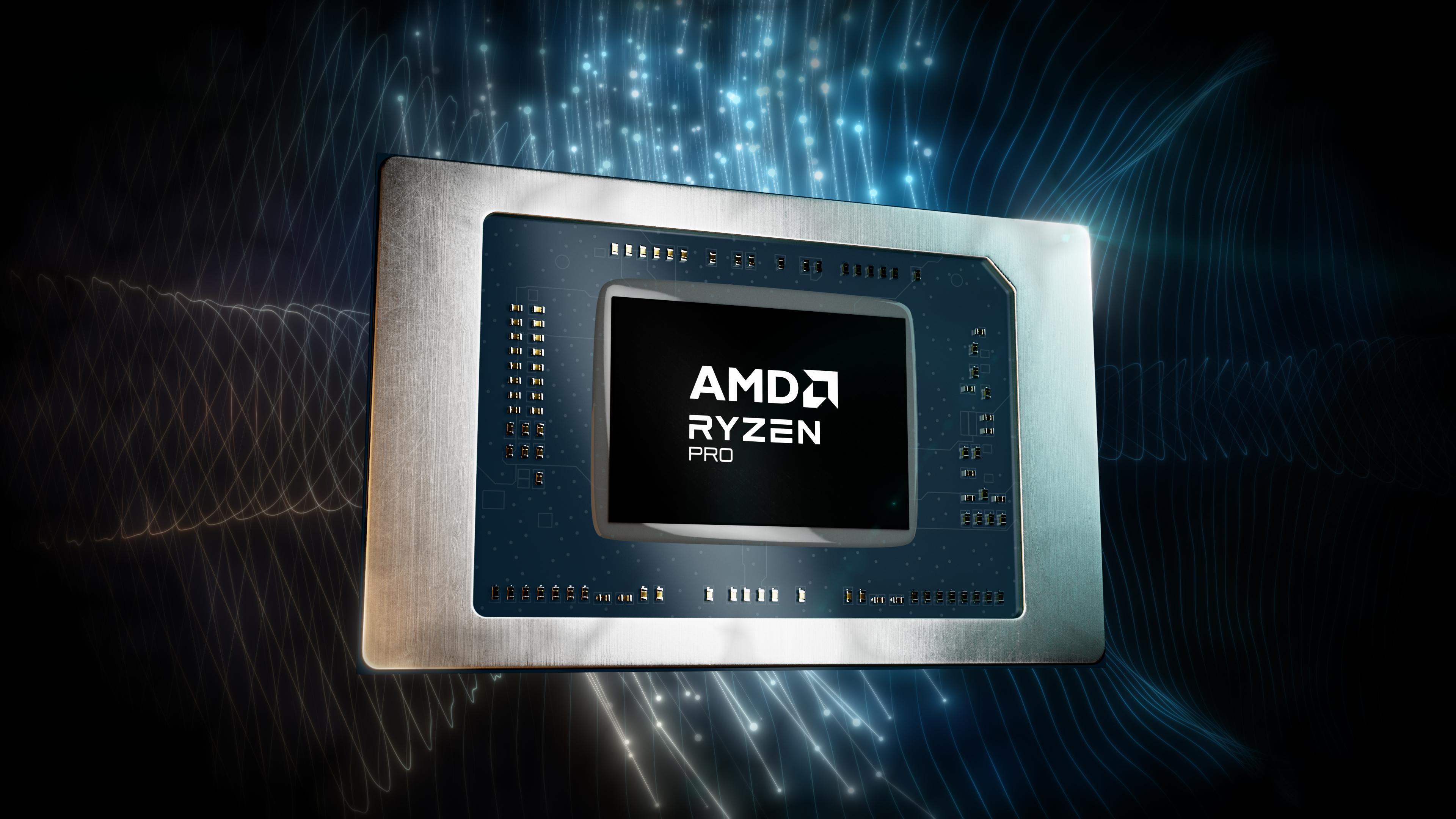
AMD unveiled its Ryzen 7000 Pro series chips today for both the mobile and desktop PC segments. It has a streamlined portfolio of Zen4-powered mobile chips for workstations and traditional commercial notebook applications that will come in new laptops from the likes of Lenovo and HP, along with three new Ryzen Pro desktop models that drop into all flavors of socket AM5 motherboards, thus leveraging an established motherboard ecosystem.
As is the norm for AMD's Ryzen Pro models geared for the commercial segment, these chips have a robust feature set of technologies geared for the professional segment to ensure longer lifecycles and refresh cycles, but they leverage the same silicon foundation as their Zen 4 consumer-oriented counterparts. The laptop chips employ the 4nm process, and the desktop chips are etched on TSMC's 5nm silicon. Additionally, select Ryzen 7000 Pro laptop processors include AMD's Ryzen AI engine that will eventually expose new functionalities for business users.
AMD Ryzen Pro 7040 Series Mobile

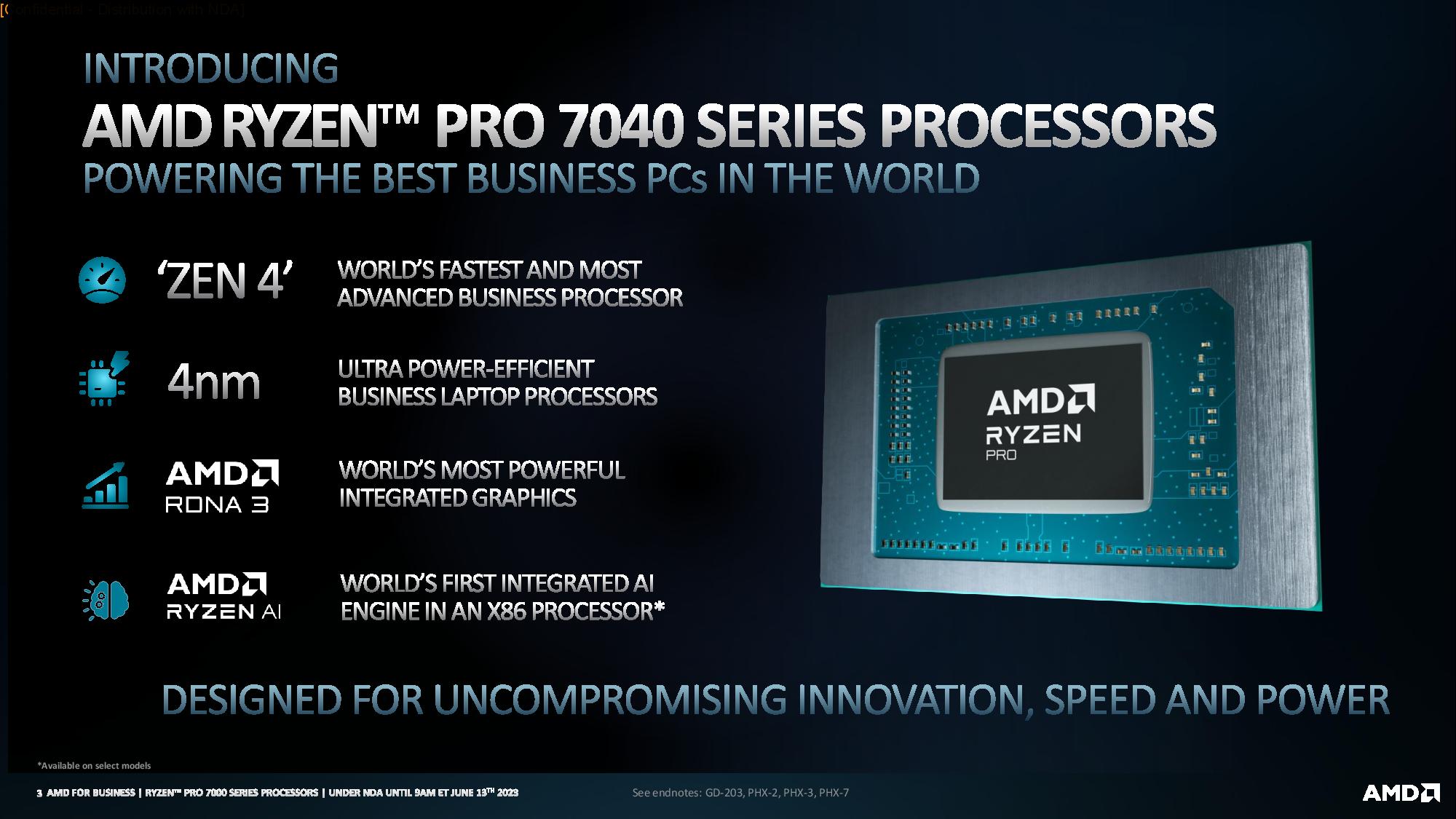
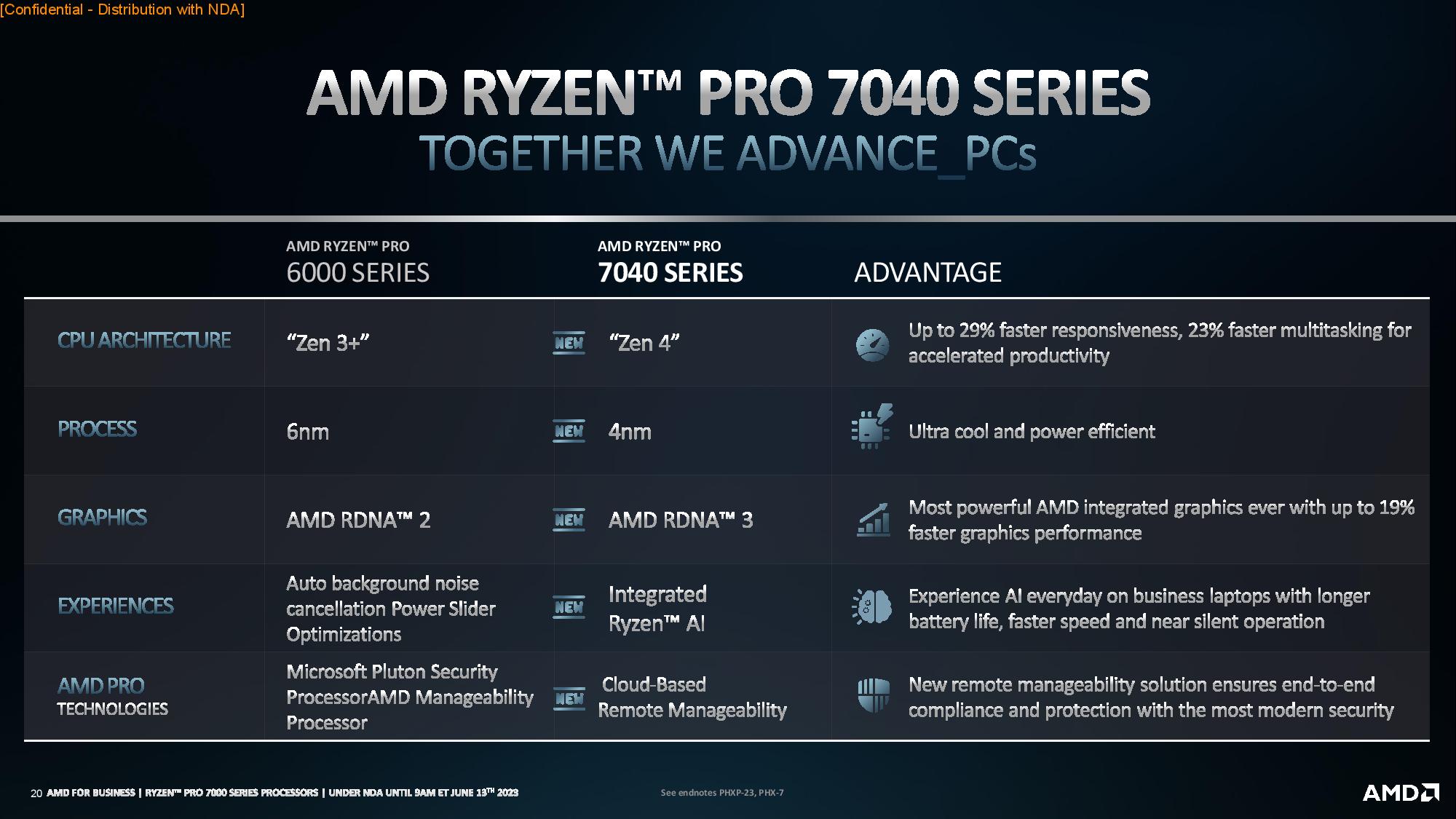
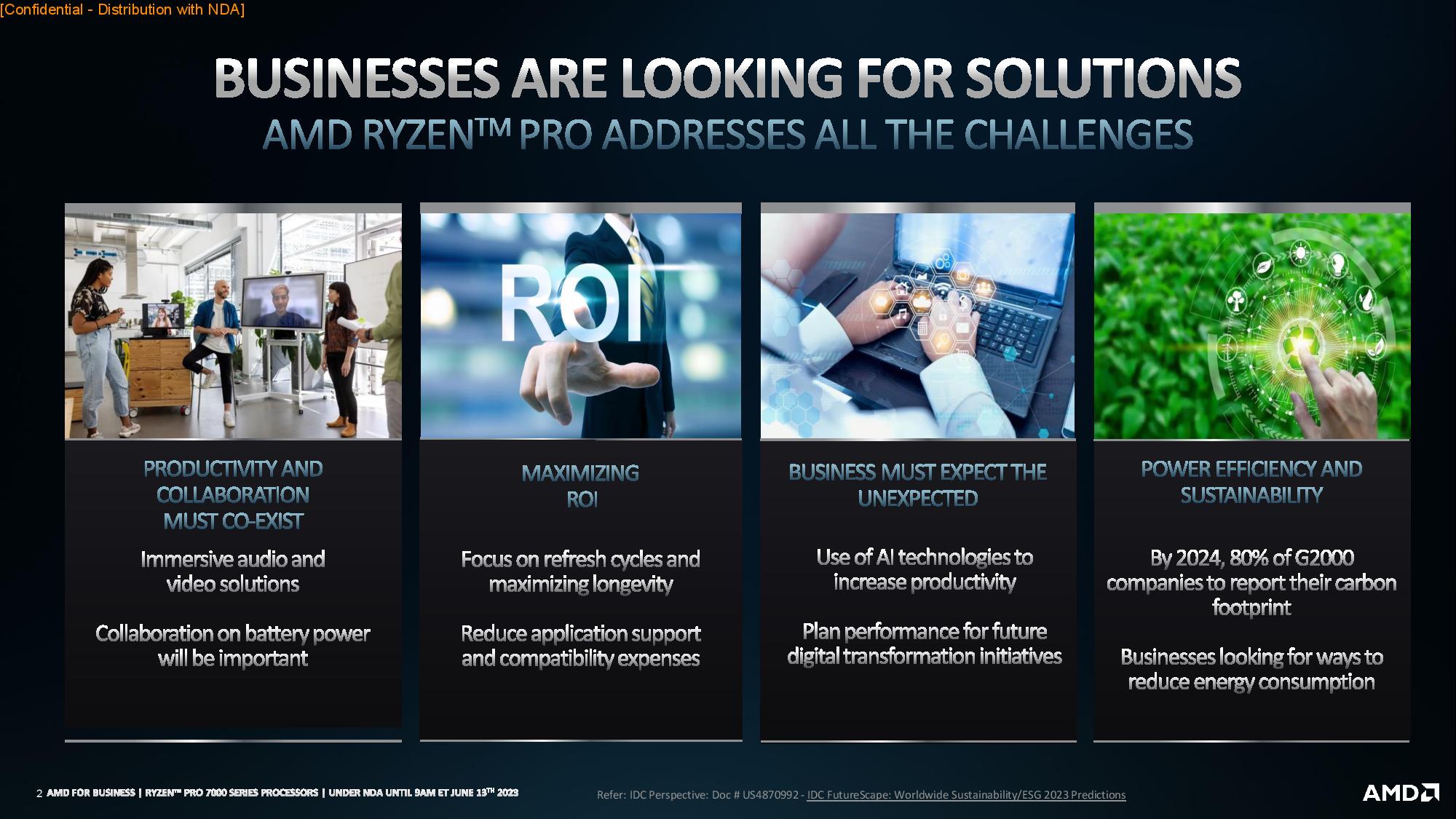
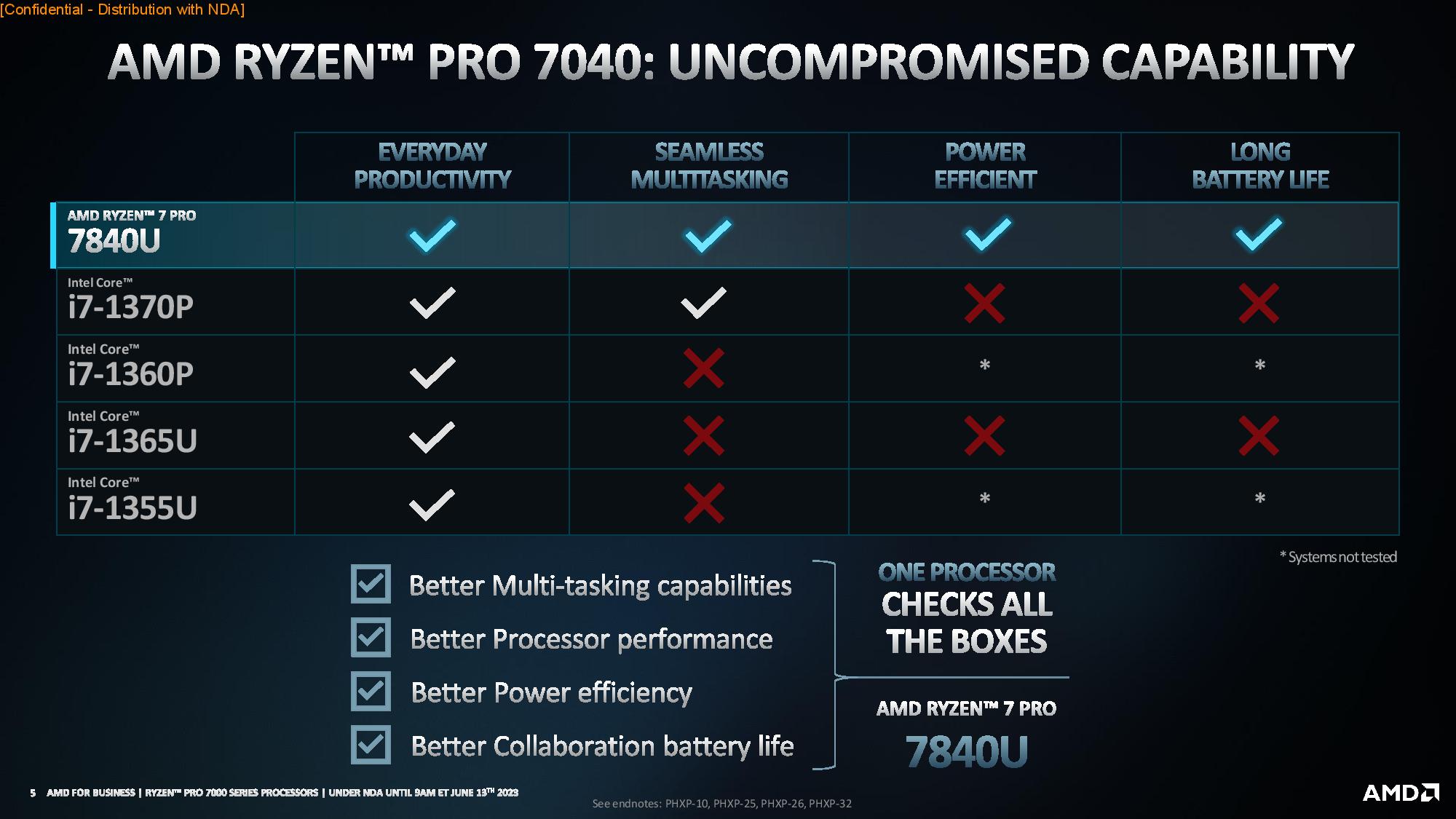
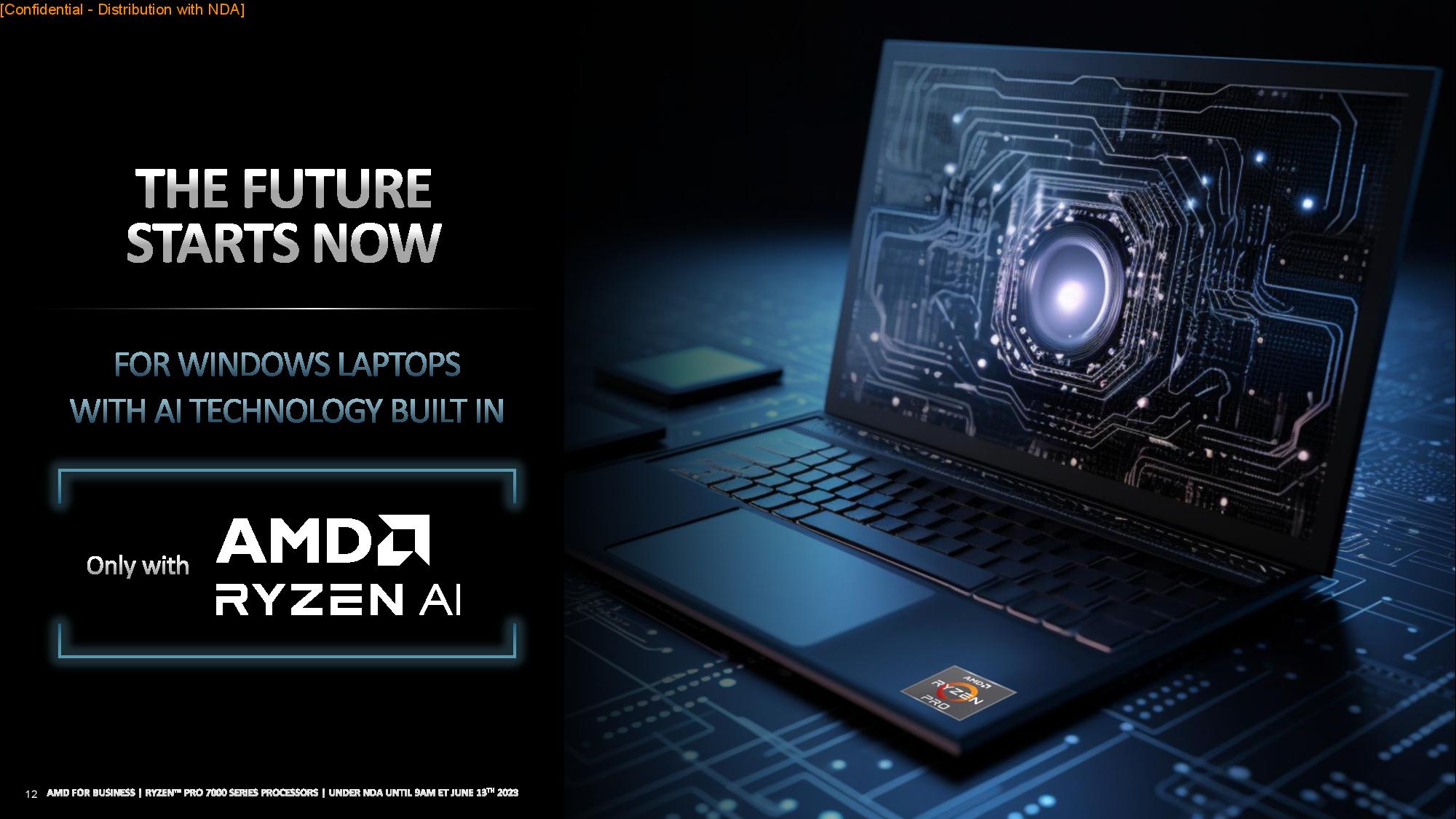
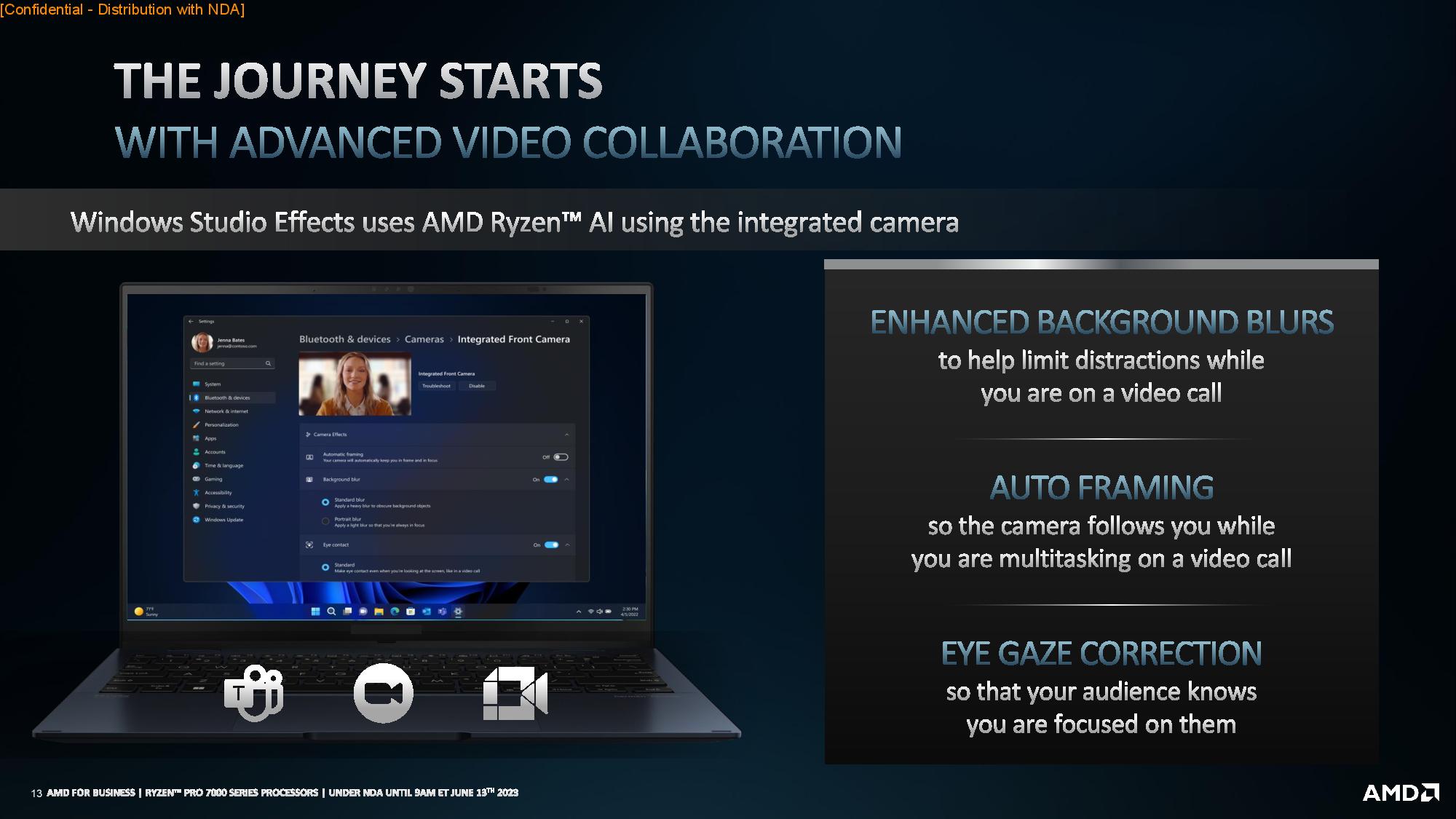
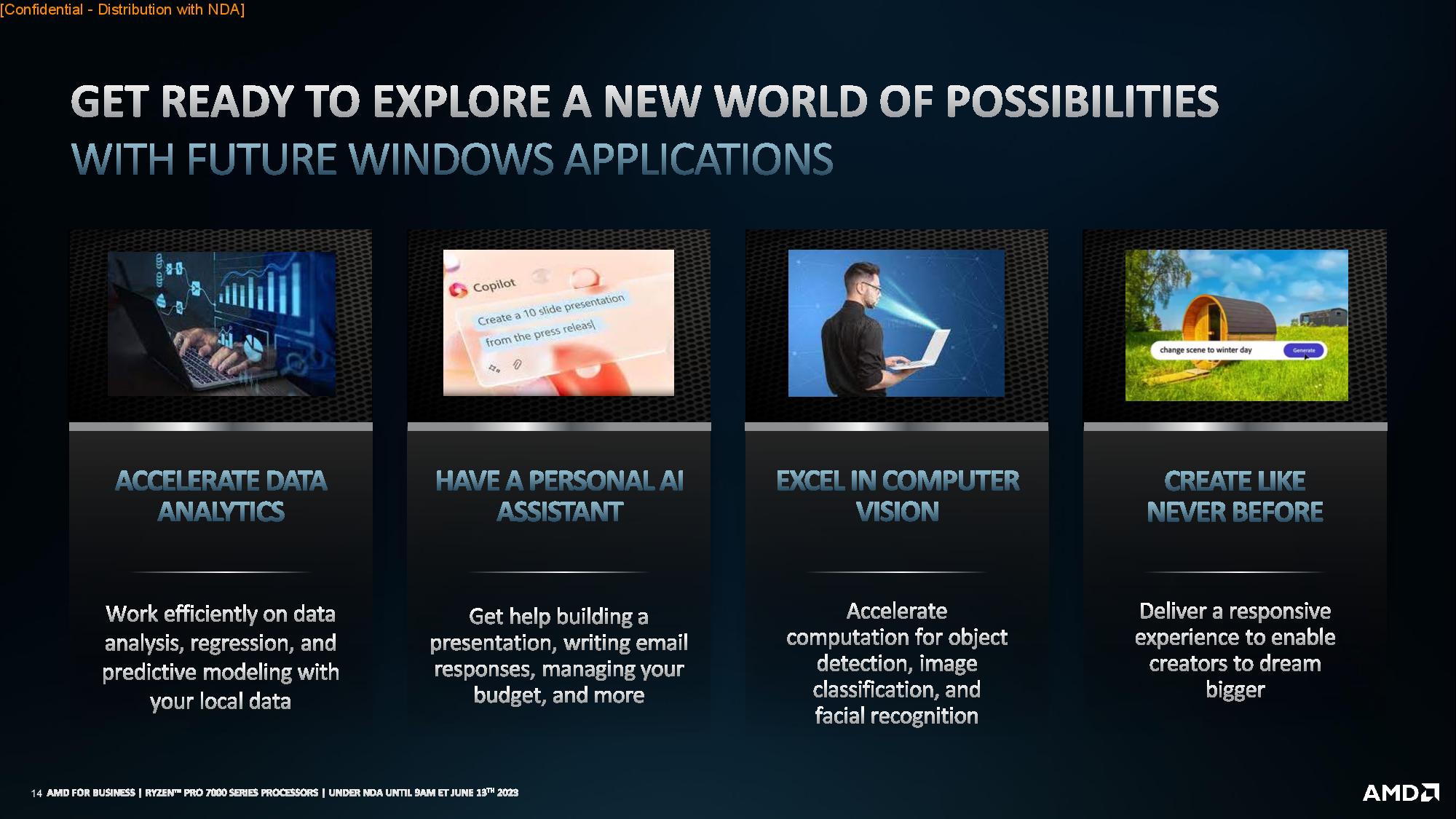
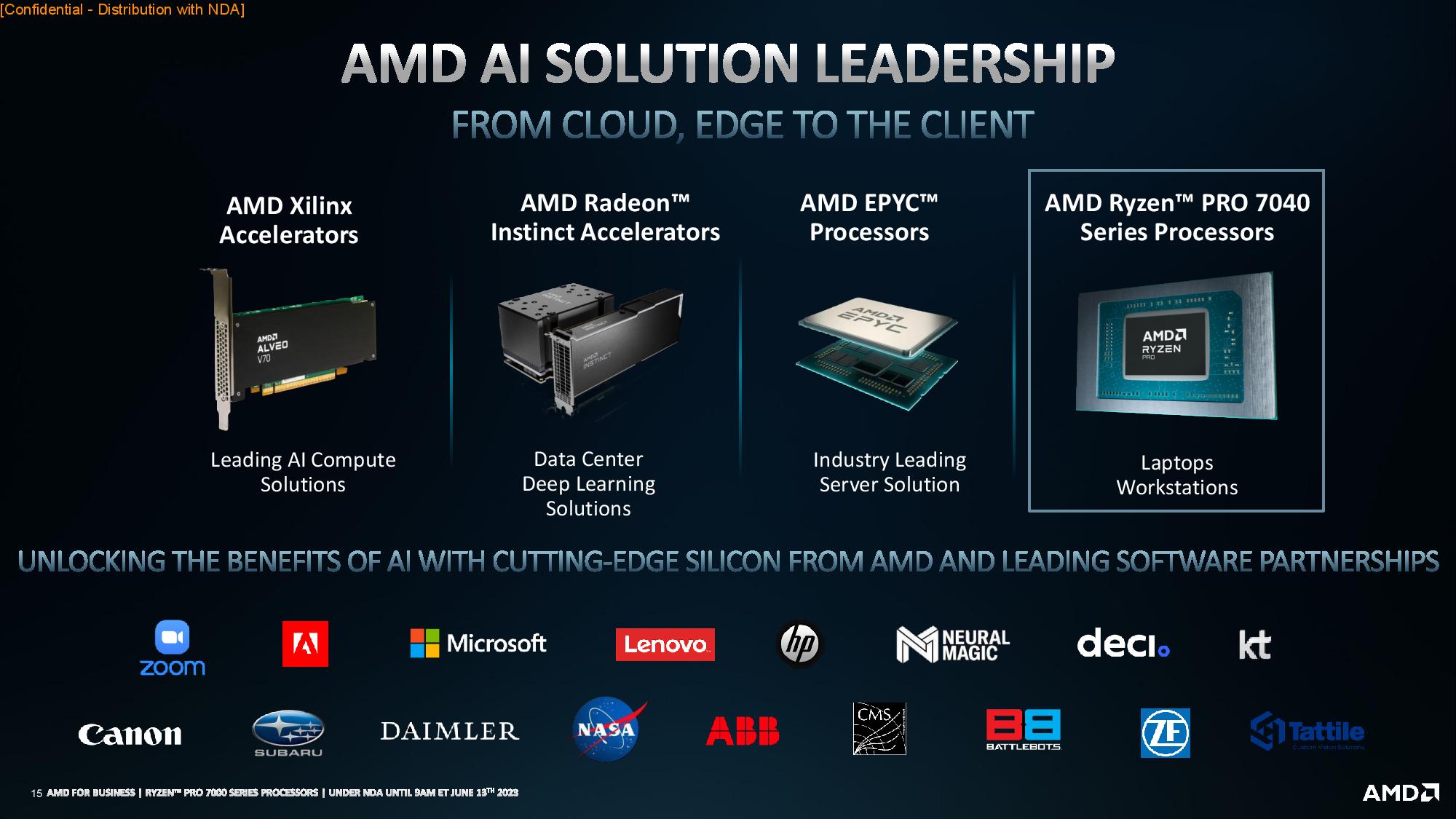
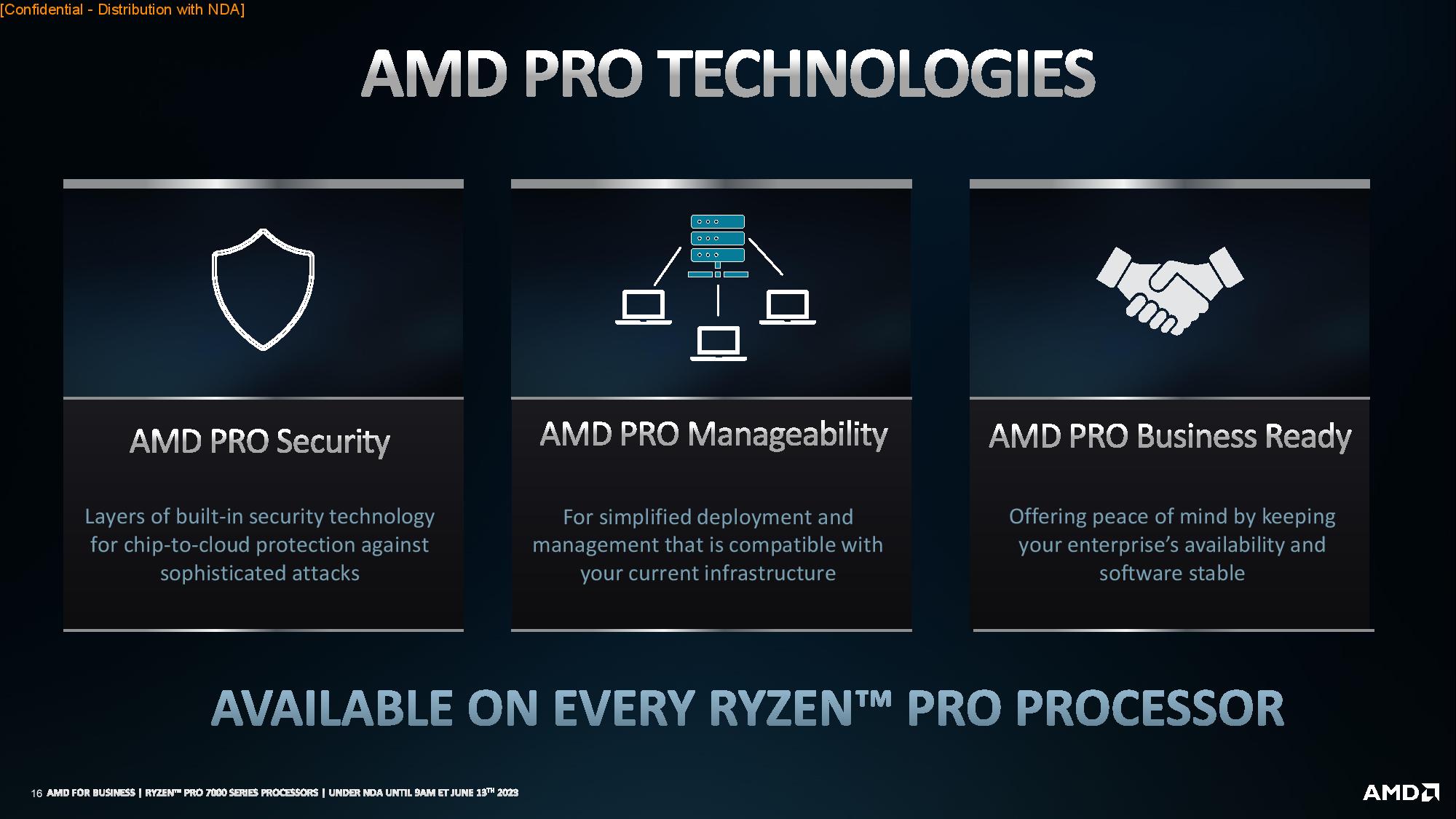
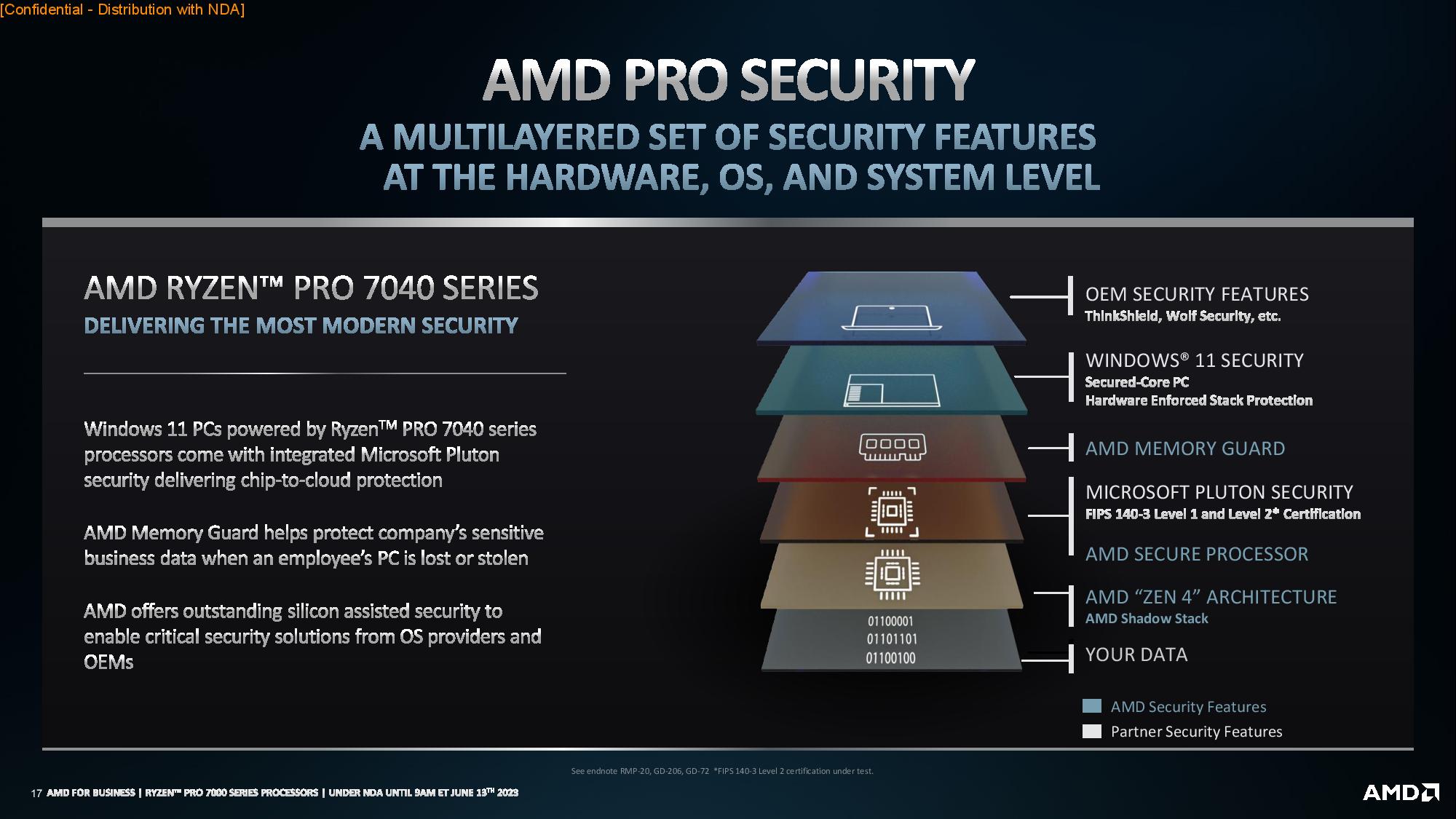
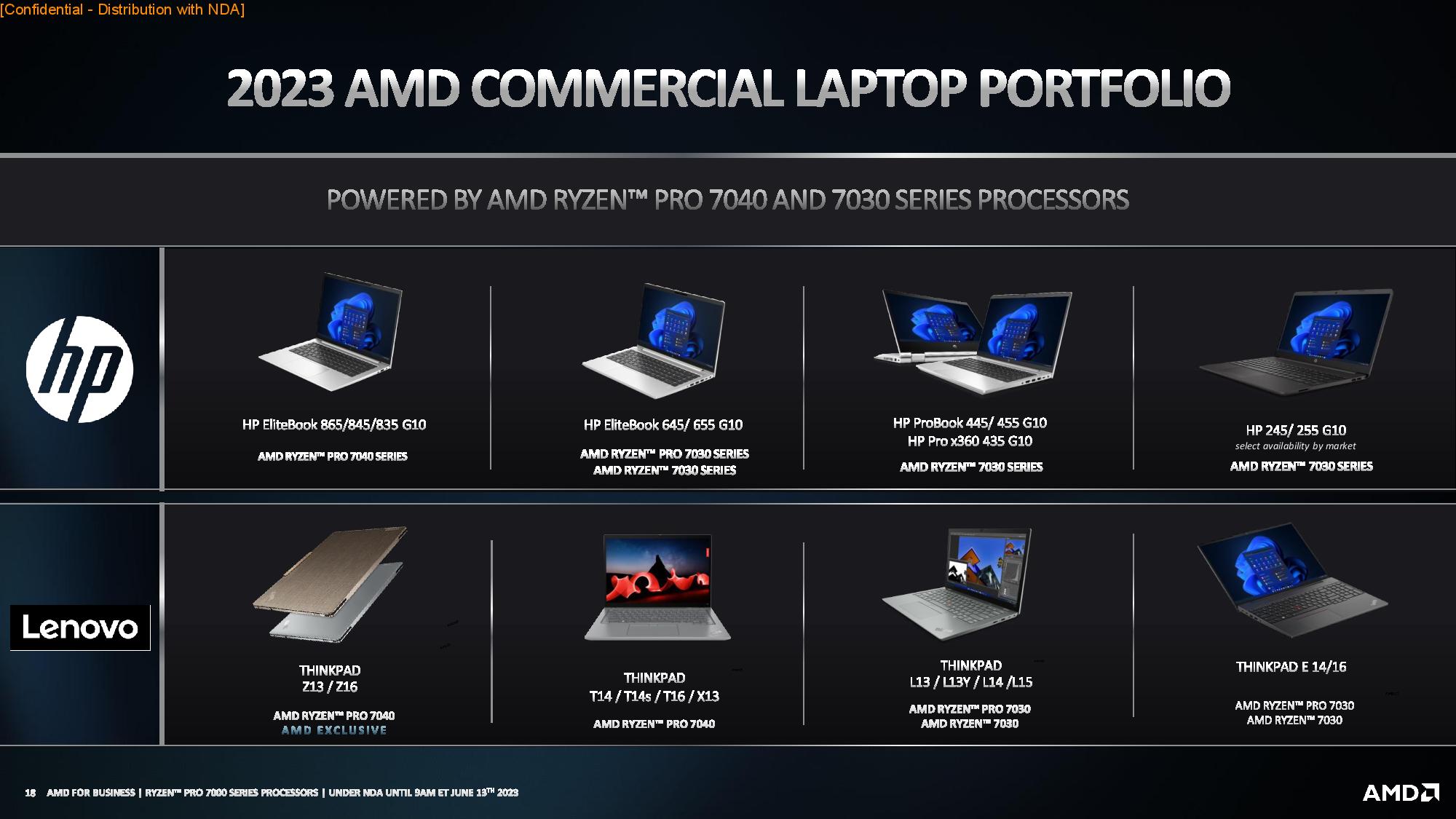
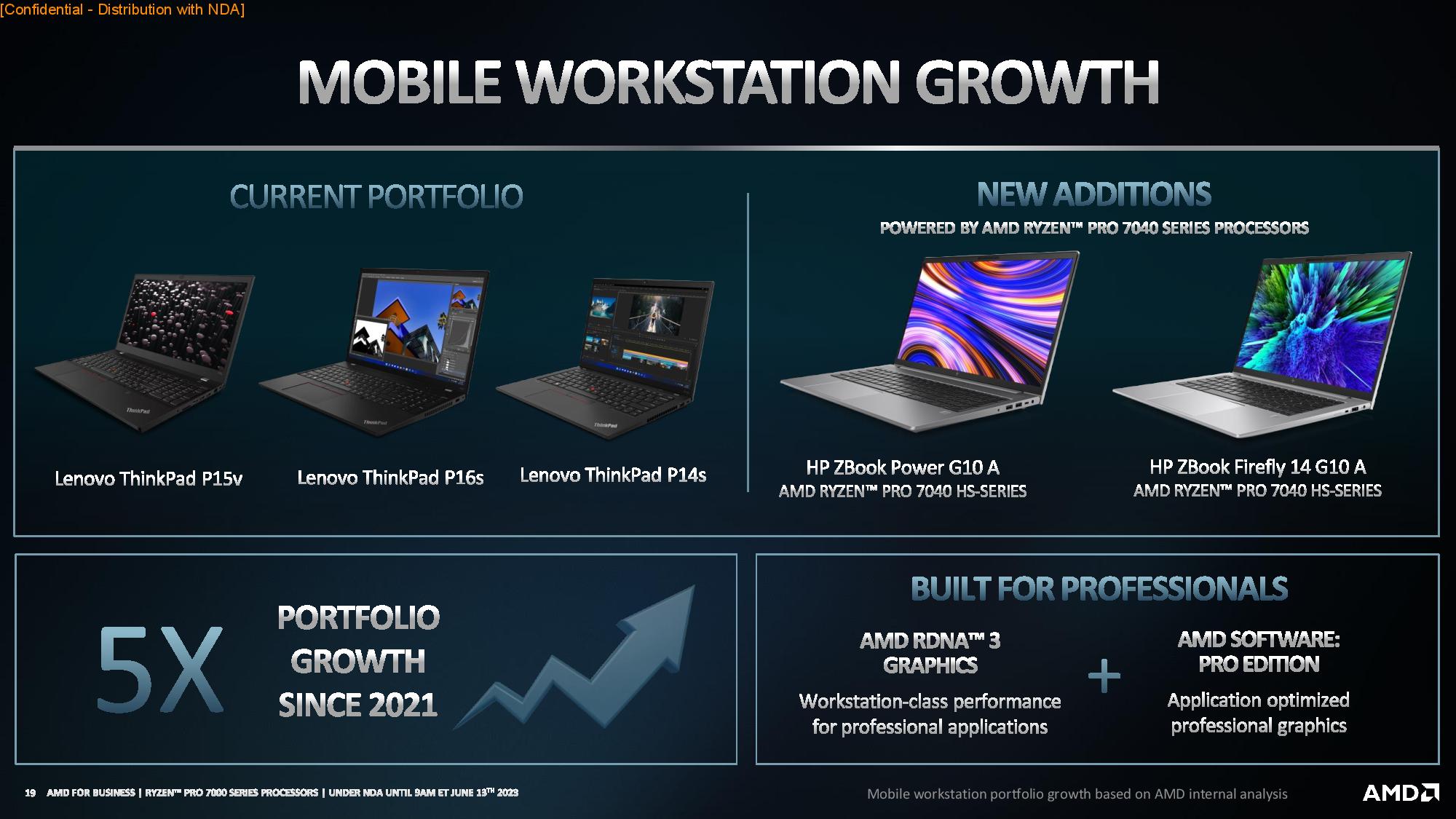
The Ryzen Pro 7040 HS-Series ‘Phoenix’ chips slot in as the solution for mobile workstations and creator systems with three processors in Ryzen 9, 7, and 5 flavors that adhere to a 35-45W TDP envelope. Like their consumer counterparts, all three models boost to 5 GHz or beyond and come with up to eight 4nm cores and 16 threads paired with the RDNA 3 graphics engine.
The Ryzen Pro 7040 U-series chips are geared for traditional commercial notebook platforms and have a 15-28W TDP envelope, but also come with up to eight cores and 16 threads.
AMD claims that its slimmed-down six-SKU product stack is flexible enough to compete with Intel's wide-ranging portfolio of competing processors, and the 7040 models come with the company's integrated Ryzen XDNA AI engine. The XDNA AI engine is a dedicated accelerator that resides on-die with the CPU cores. The goal for the XDNA AI engine is to execute lower-intensity AI inference workloads, like audio, photo, and video processing, at lower power than you could achieve on a CPU or GPU while delivering faster response times than online services, thus boosting performance and saving battery power.
For now, the Ryzen AI engine works with the Windows Studio Effects suite to process video in real-time for features such as background blurring, gaze correction, and auto-framing, but the company envisions a future where the onboard AI engine assists with other tasks, like data analytics, personal AI assistants, computer vision, and enhancing creativity workflows. Naturally, these use cases will rely upon further development of the AI-accelerated application ecosystem, but AMD says the enablement work is well underway.
The integrated AMD Pro Technologies suite is the key difference between these chips and the standard consumer models and features like AMD Pro Security, which include multiple layers of security that leverage proprietary OEM solutions and in-built Windows 11 features, AMD memory guard, Microsoft Pluton, and the AMD Secure processor. The AMD Pro Manageability features ease provisioning, system imaging, and deployment tasks, while the AMD Pro Business Ready suite ensures stability and includes a quality and reliability guarantee.
Ryzen Pro 7040 and 7030-powered systems will come from AMD partners such as HP and Lenovo, with an extensive array of options listed in the above slides, including new HP EliteBooks and Probooks, along with new Lenovo ThinkPads. Meanwhile, Lenovo will continue to offer its ThinkPad workstation models, like the P15v, P16s, and P14s, but new HP ZBooks will also join the Ryzen Pro workstation portfolio.
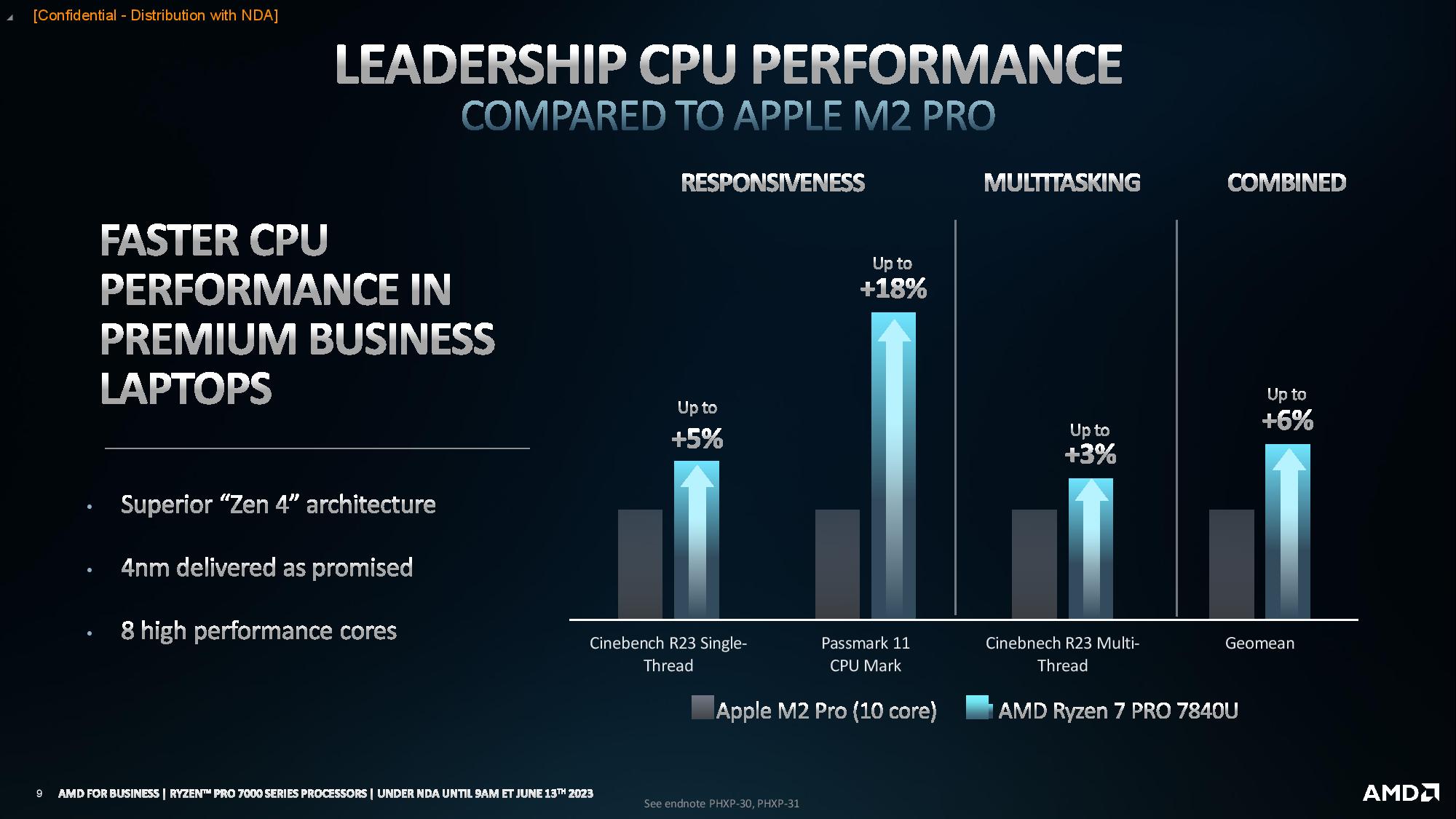
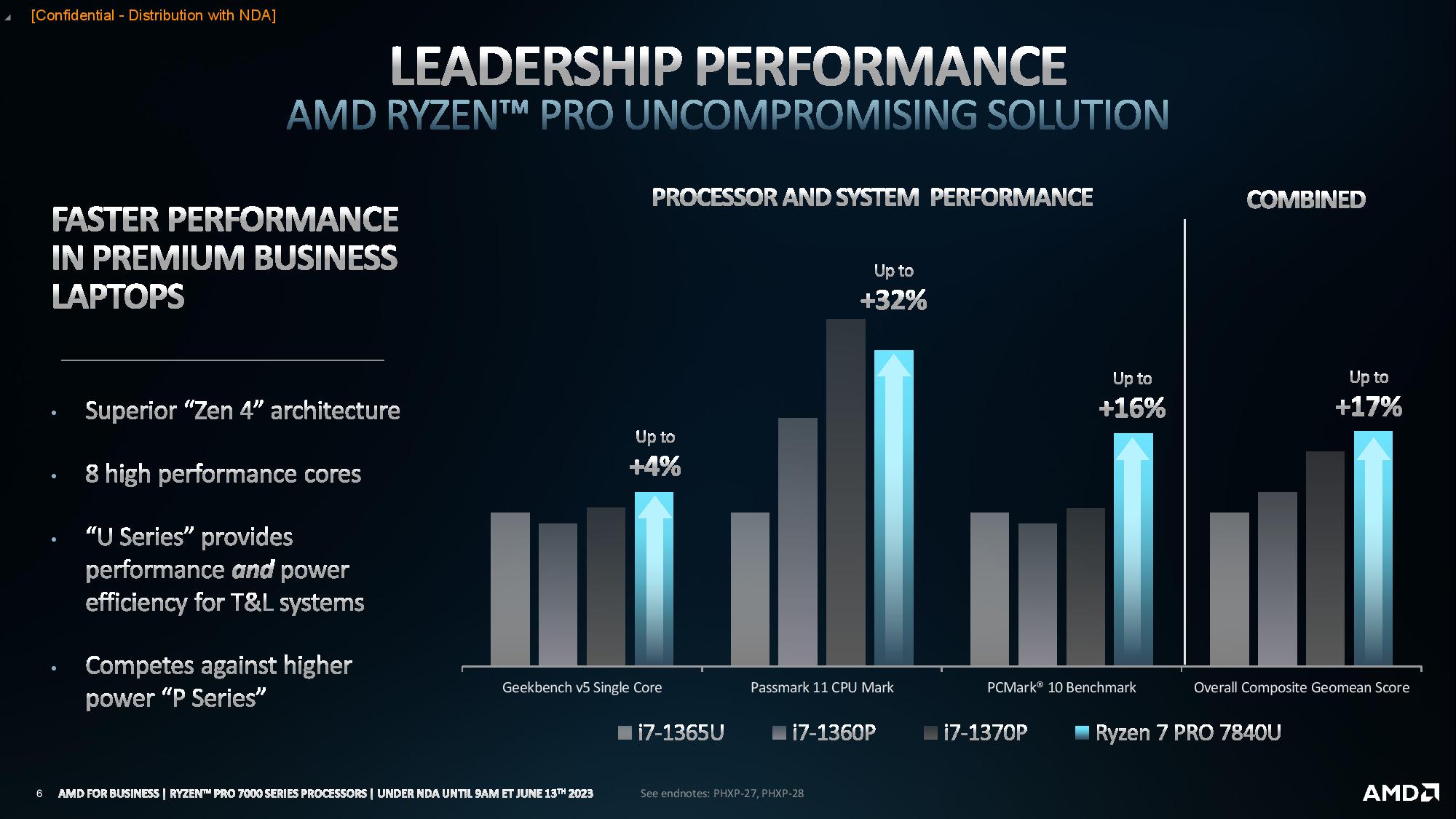
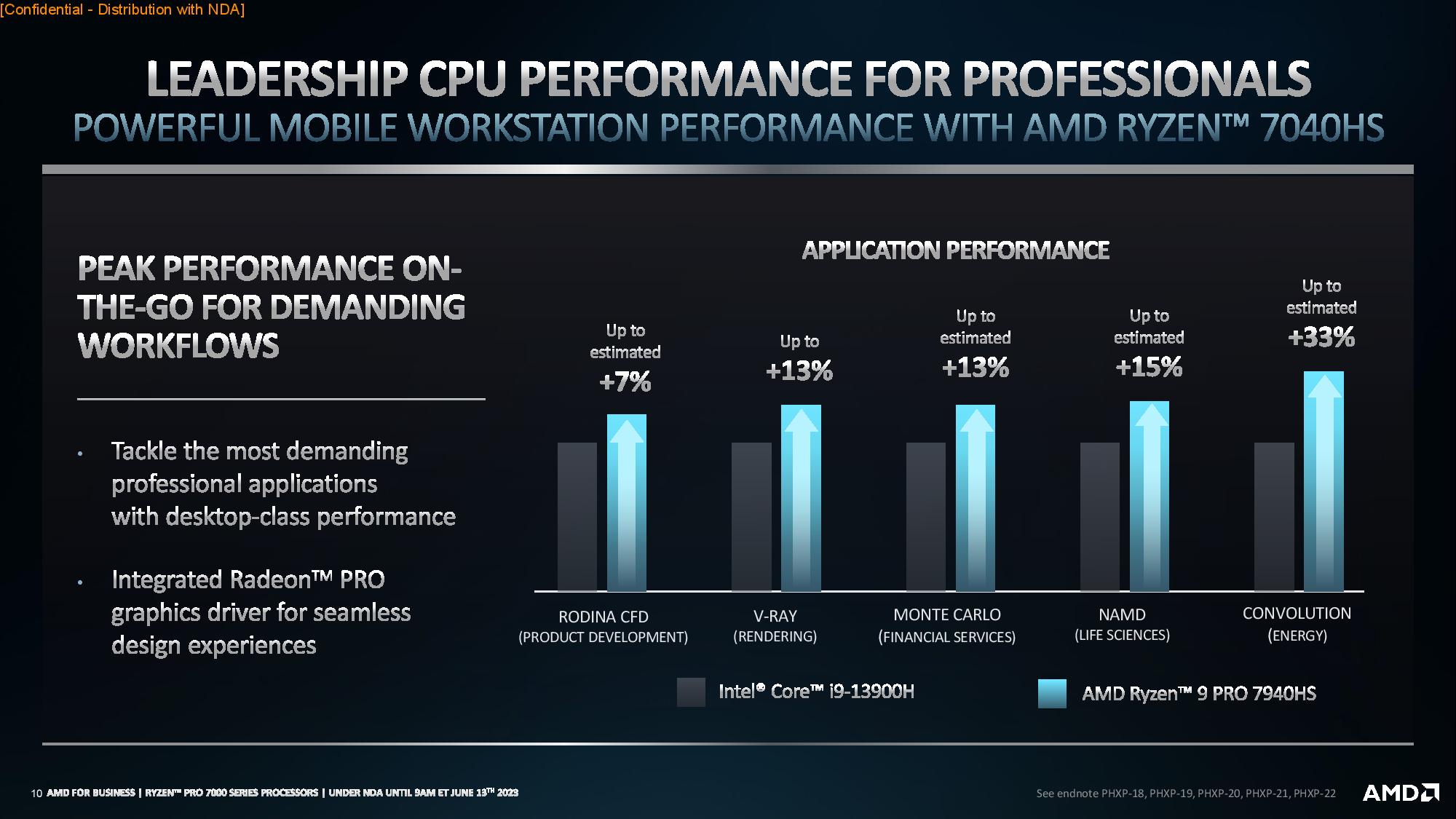
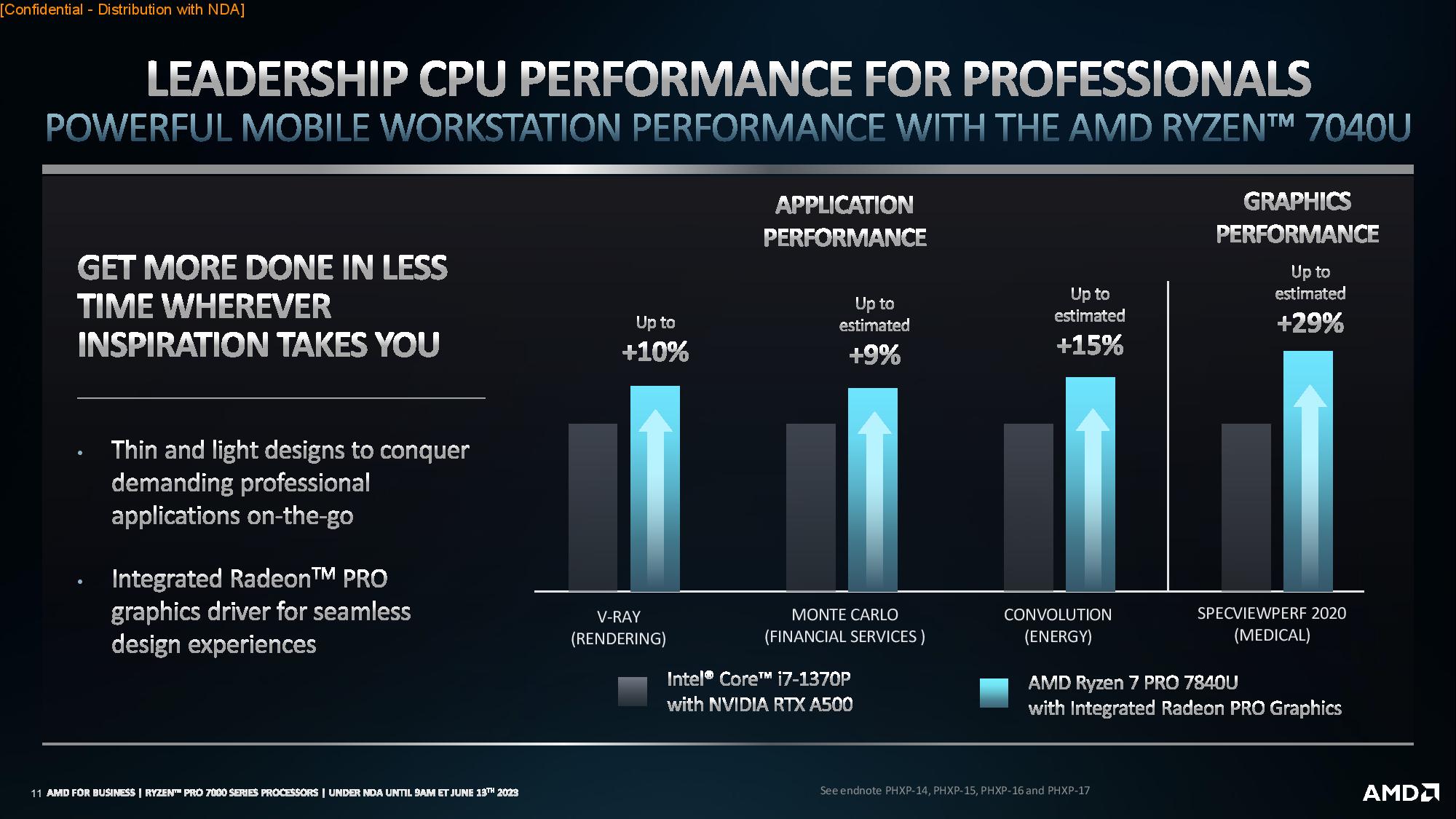
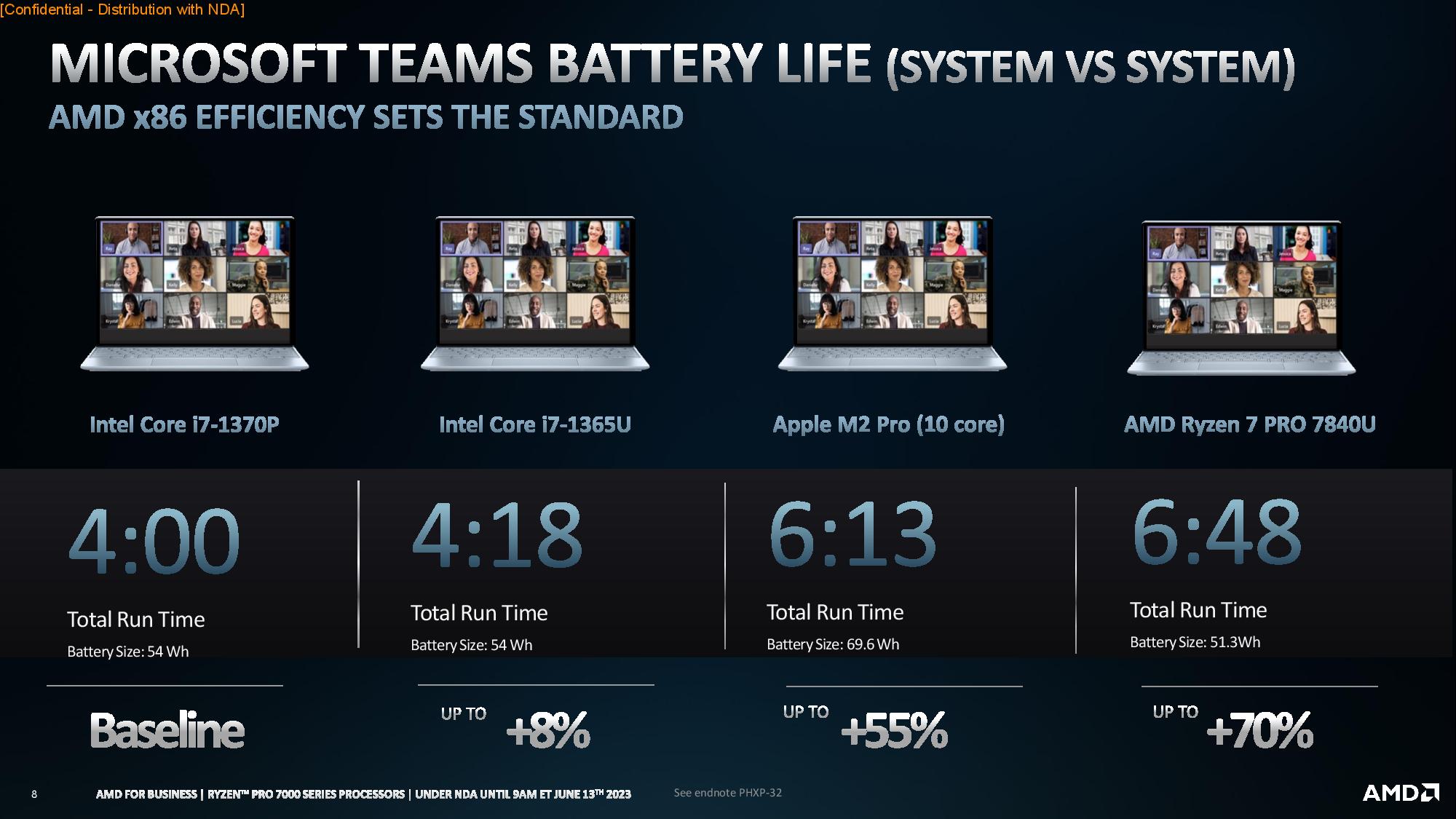
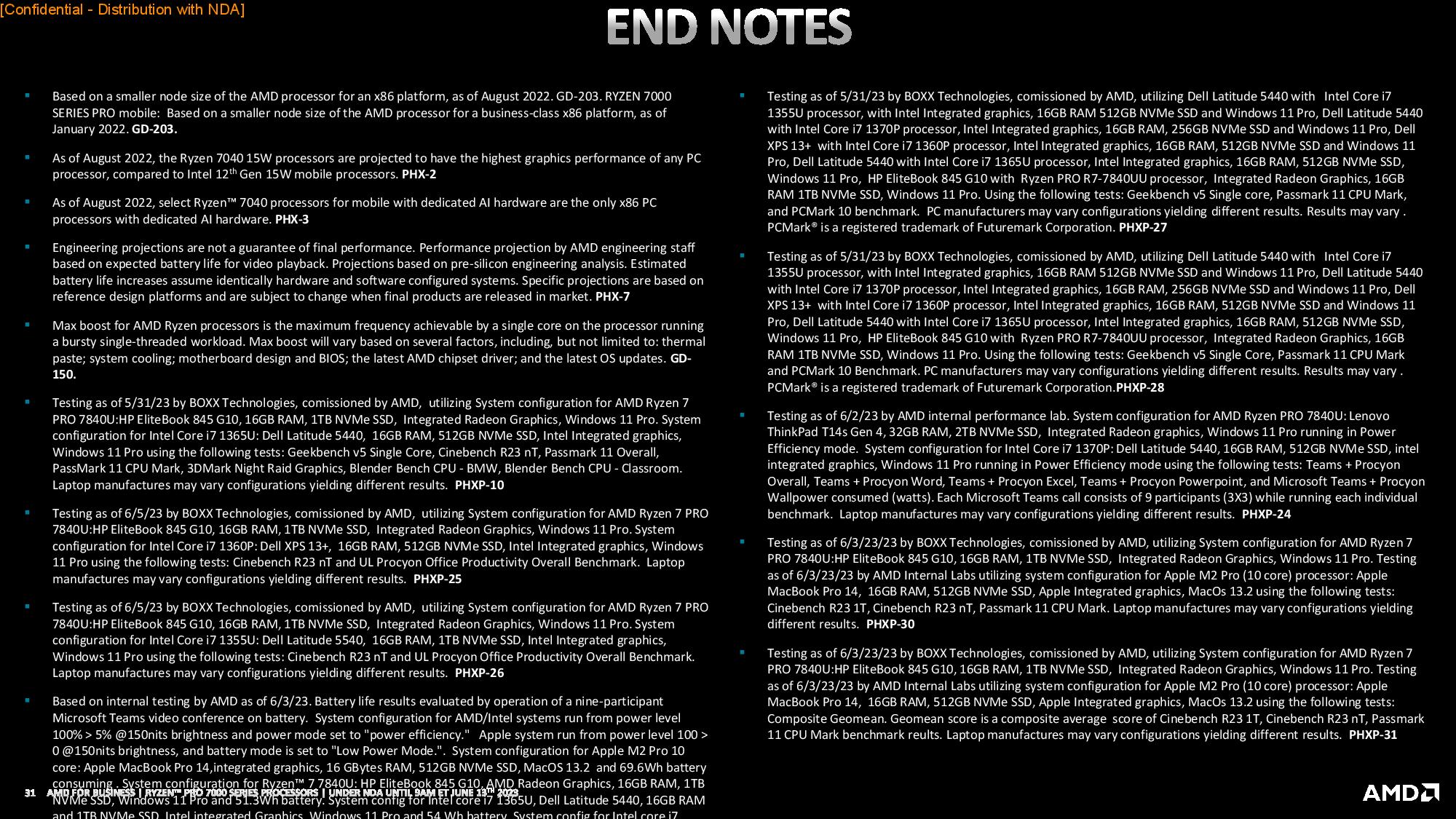
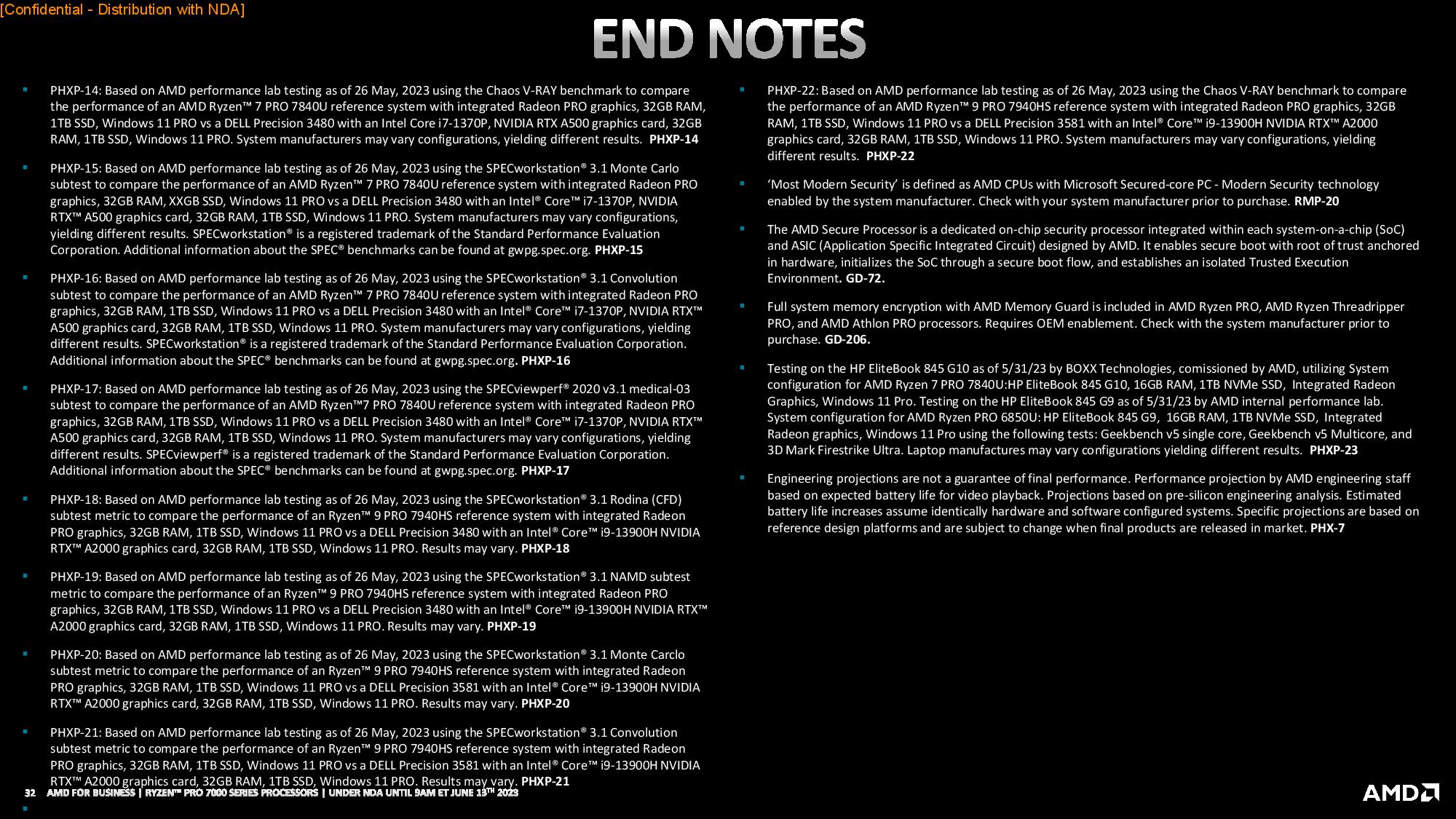
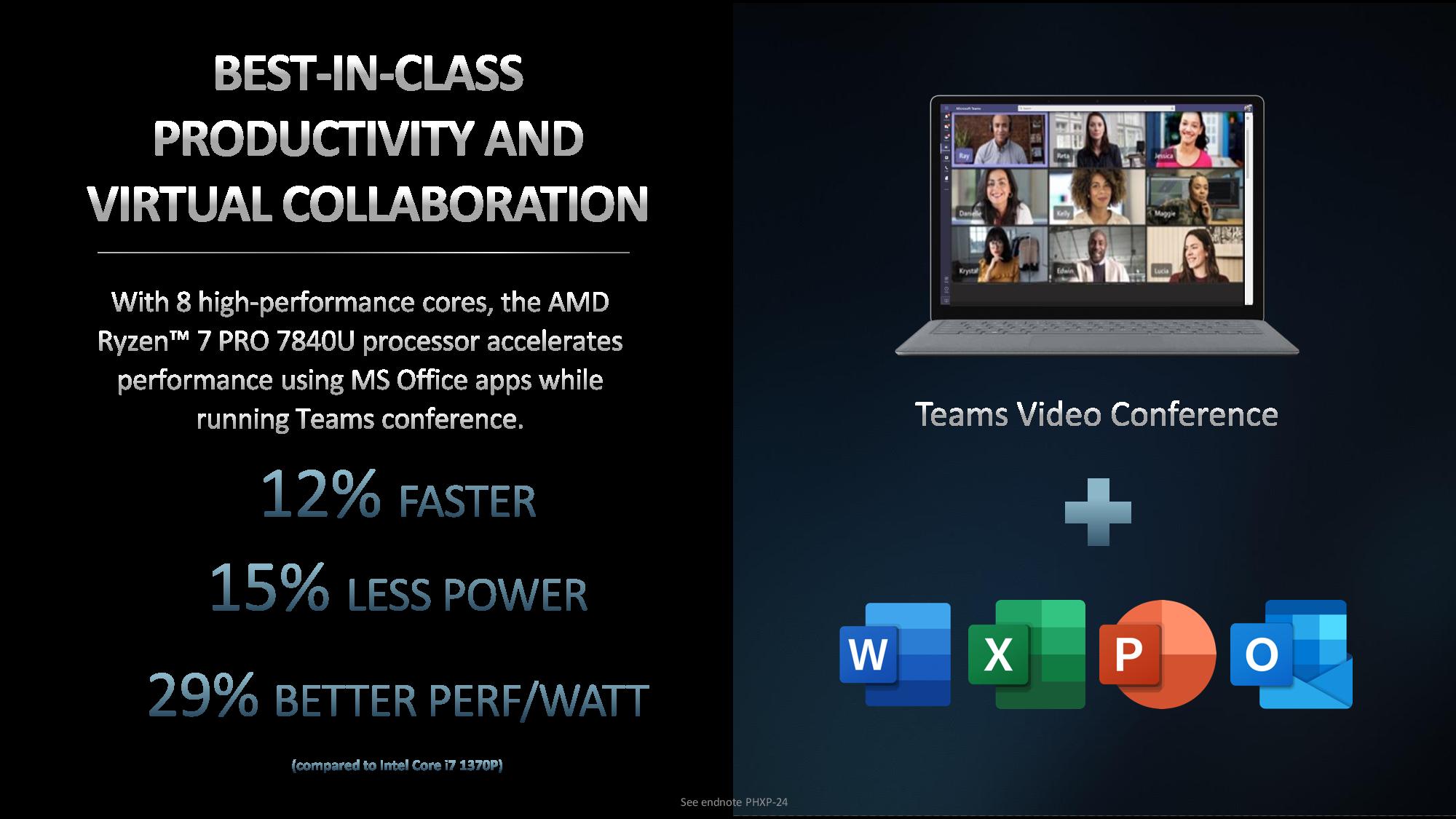
As with all vendor-provided benchmarks, you should take the comparisons in the above album with a grain of salt. We have included the test notes in the above album with system and benchmark details.
AMD's benchmarks include several comparisons to the Apple M2 Pro processor present in the MacBook Pro. AMD claims an overall performance advantage of 6% over the M2 Pro, with a 5% lead in Cinebench, 11% in Passmark 11, and 3% in the Cinebench multi-thread test.
On the Intel front, AMD put the Ryzen 7 Pro 7840U up against the Core i7-1370P in a multi-tasking test that consisted of using Microsoft Office applications during a Teams video conference, with 12% faster performance while delivering 29% better performance-per-watt and using 15% less battery power. Other highlights include the 7840U facing off with the Core i7-1365U, i7-1360P, and i7-1370P, with up to 4% more performance in single-core GeekBench, and up to 16% more performance in PCMark 10. The 7840U also beats all but the Core i7-1370P in the Passmark 11 CPU test.
AMD also included battery life benchmarks comparing the Ryzen 7 Pro 7840U against two Core i7 models and the Apple M2 Pro, with the former both having a battery capacity of 54 Wh, while the latter had a 69.6 Wh battery. Meanwhile, the Ryzen 7 Pro 7840U system was equipped with a 51.3 Wh battery yet managed to deliver longer battery life than all three competing laptops, with the highest delta being a 70% advantage over the Core i7-1370P.
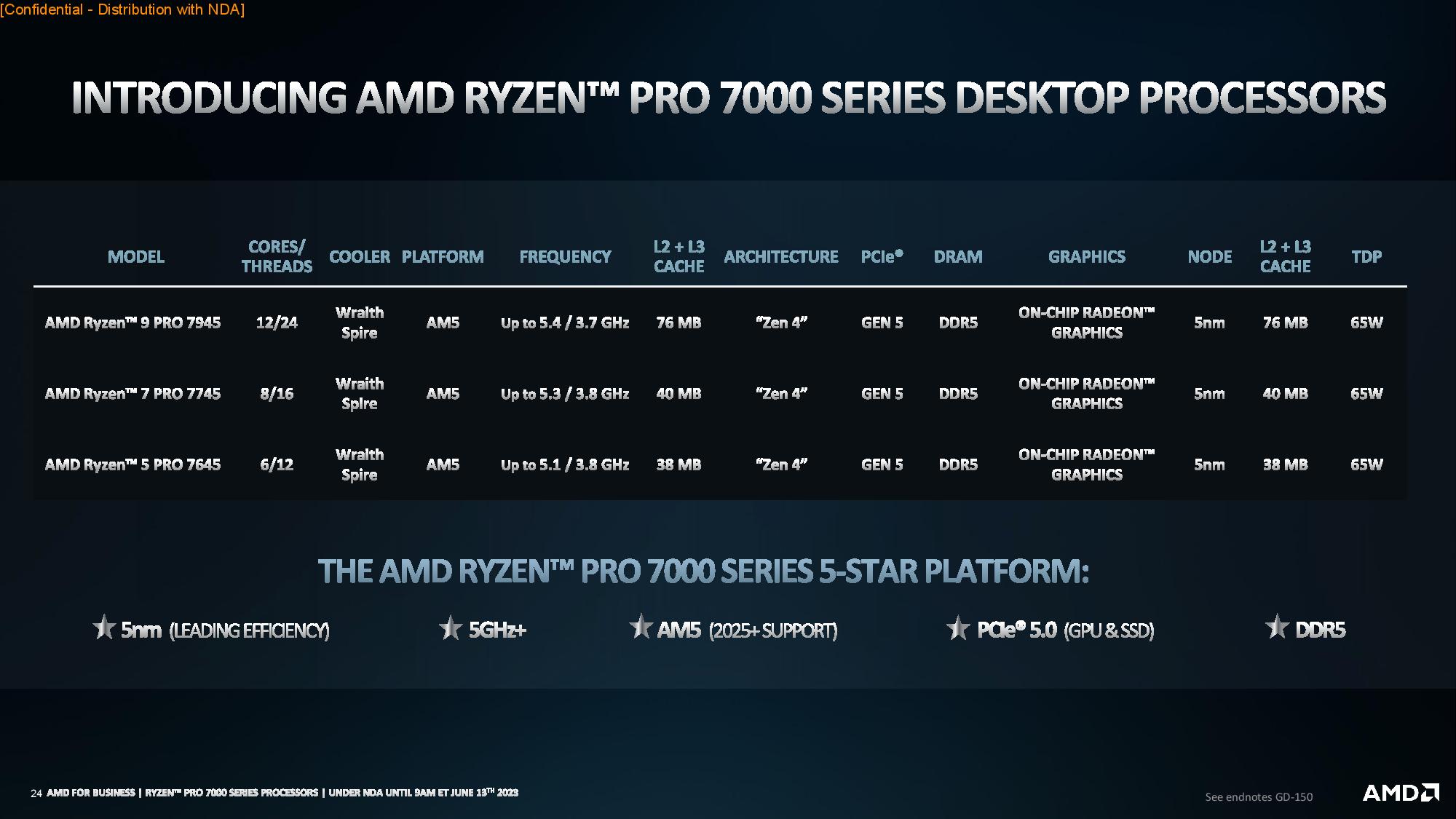
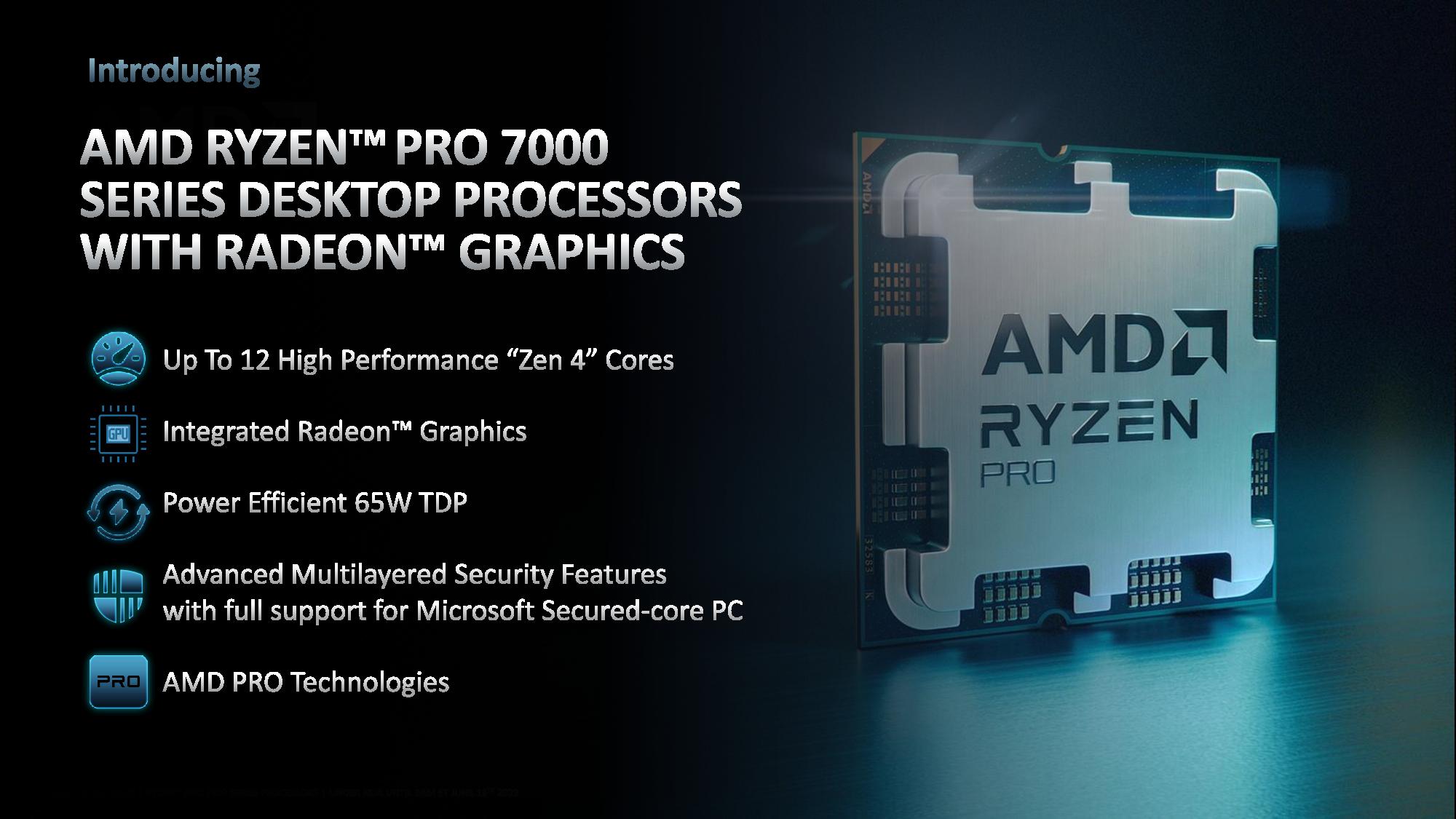
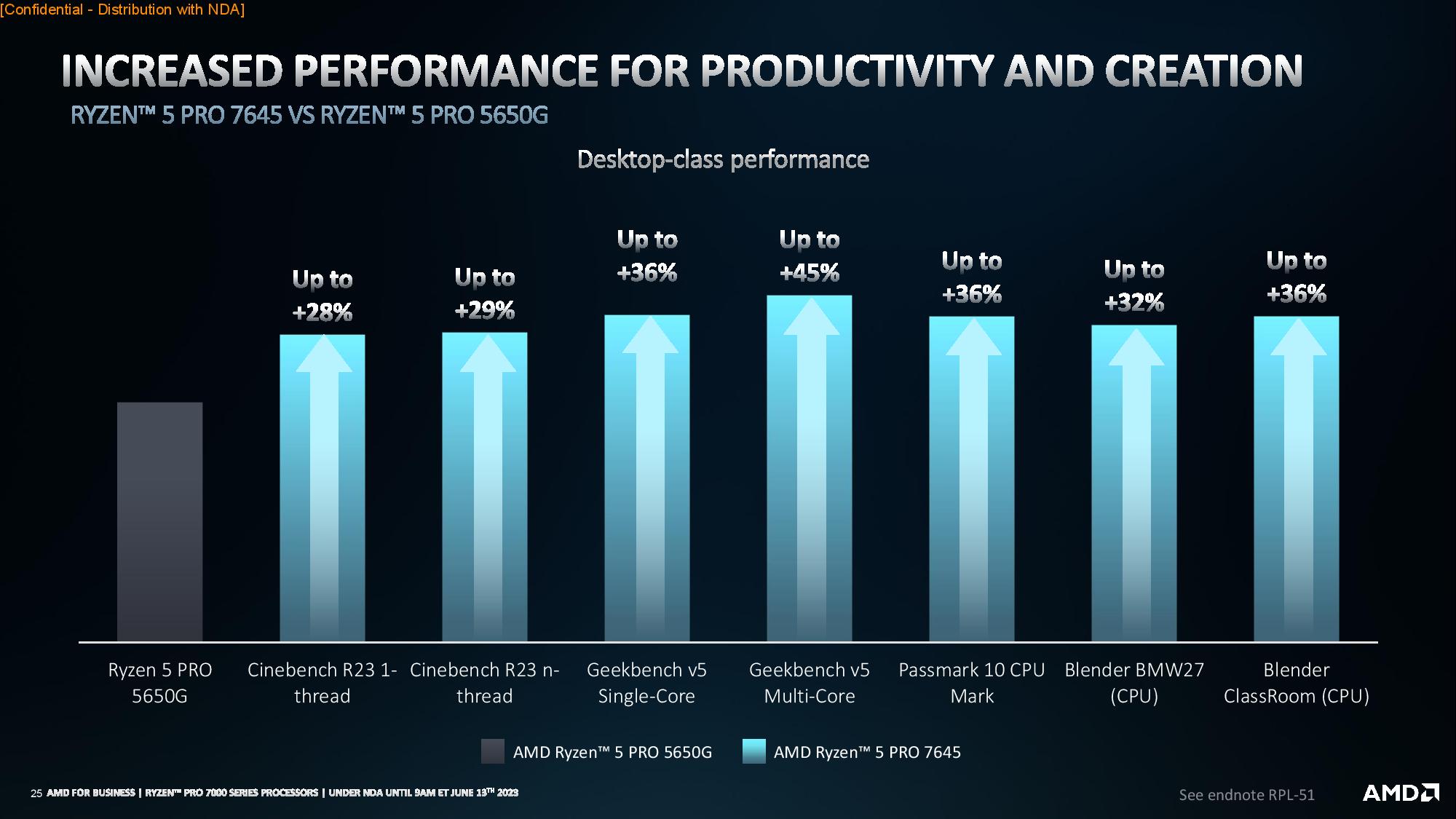
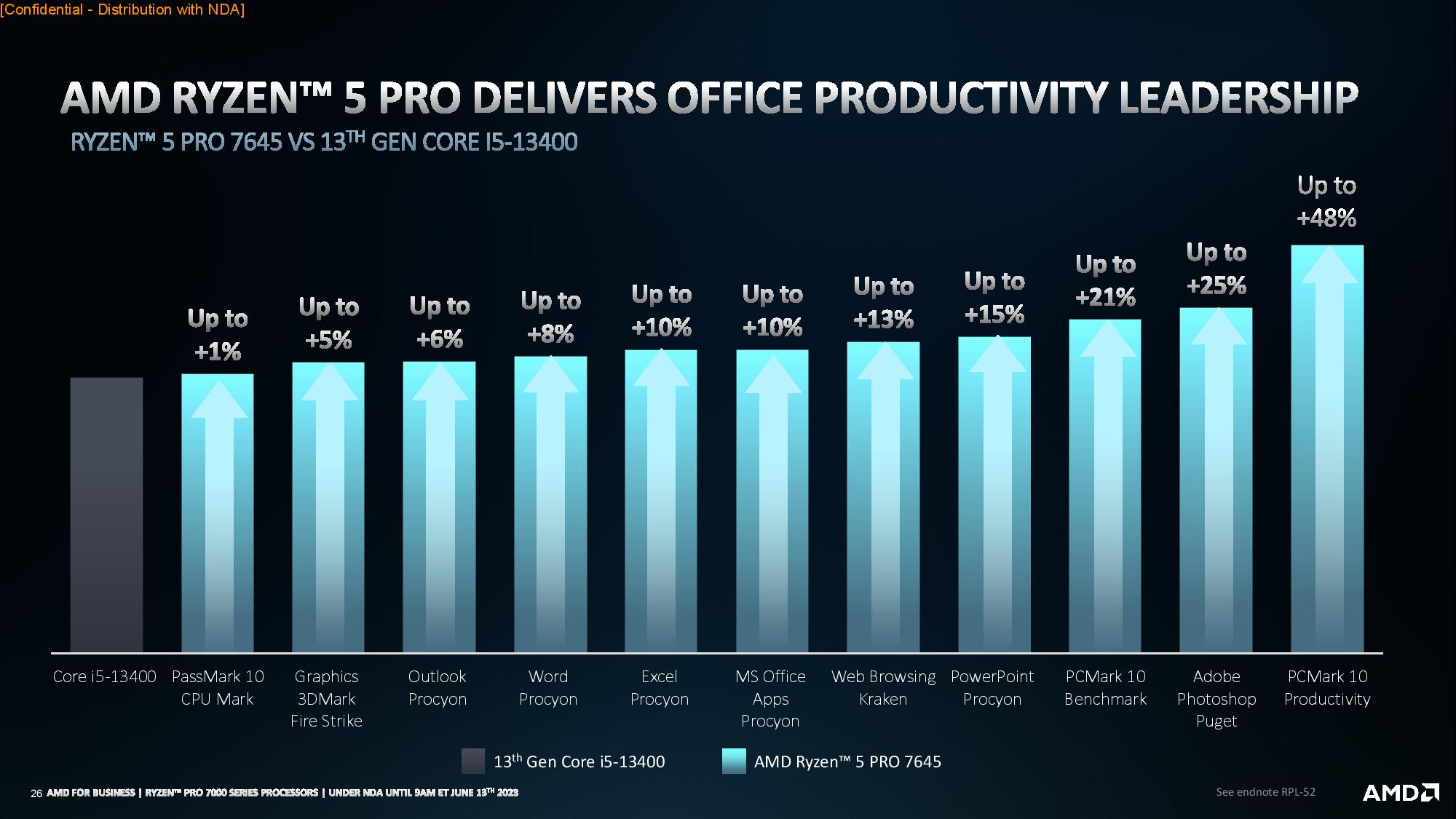
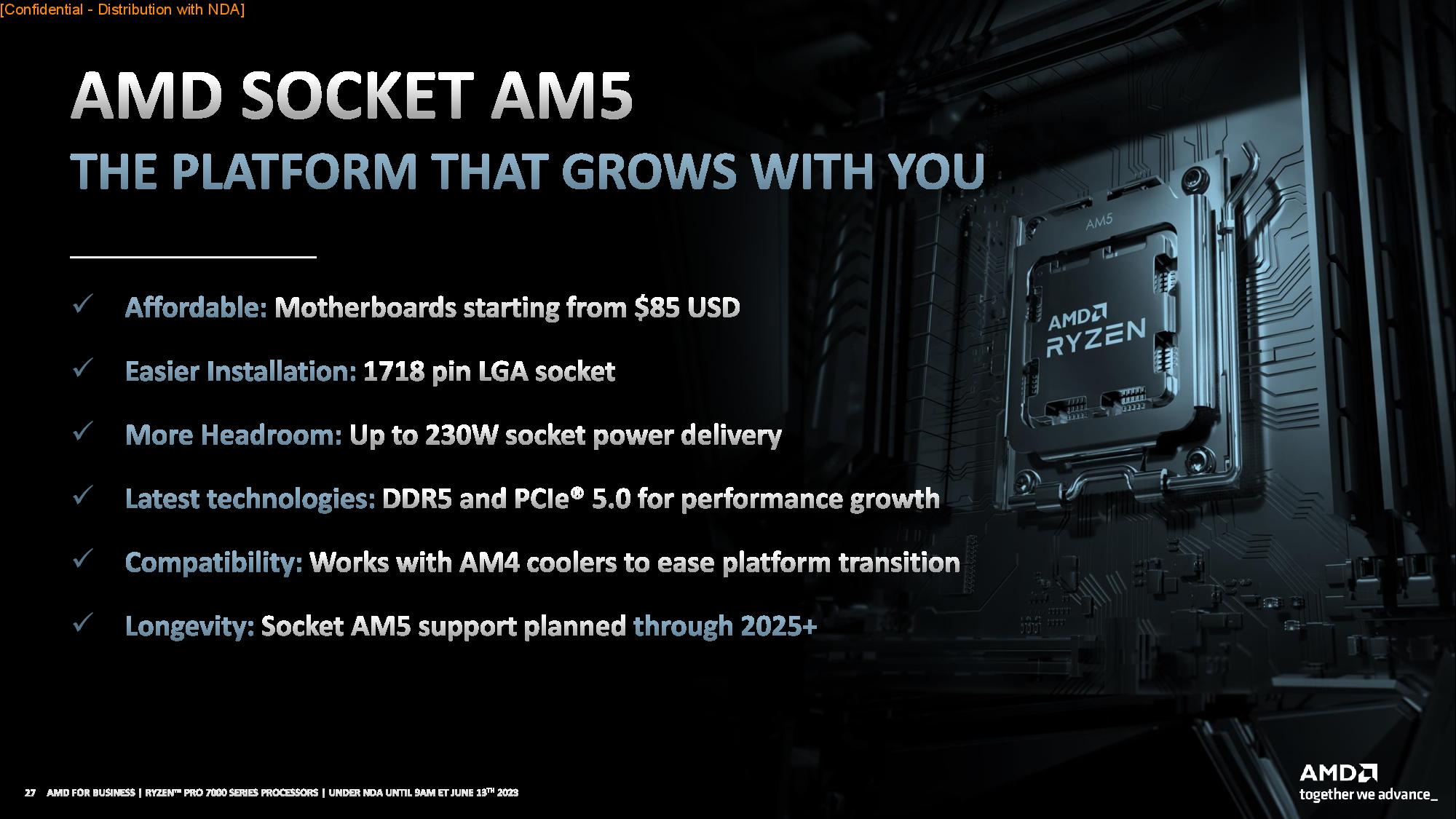
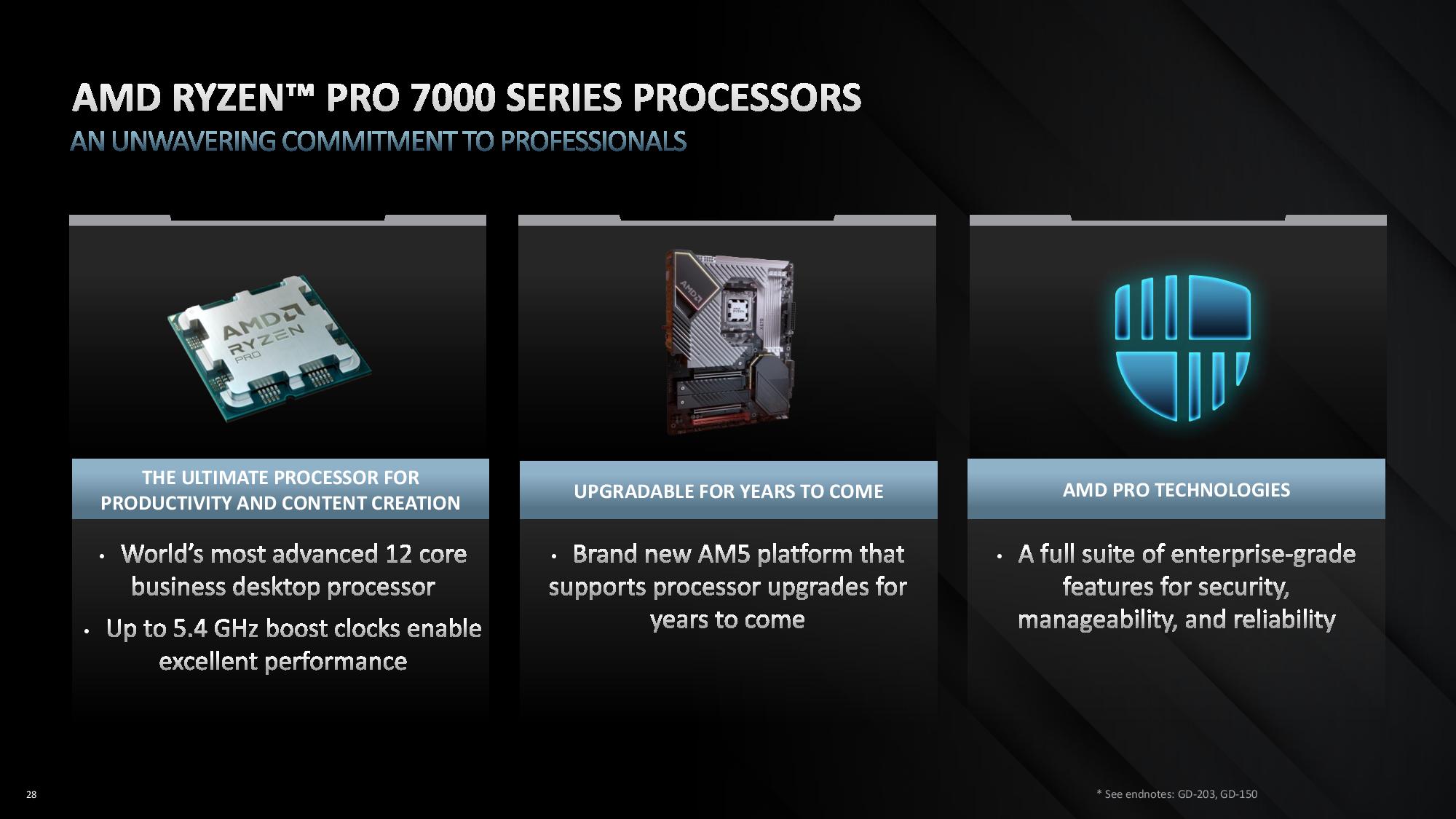
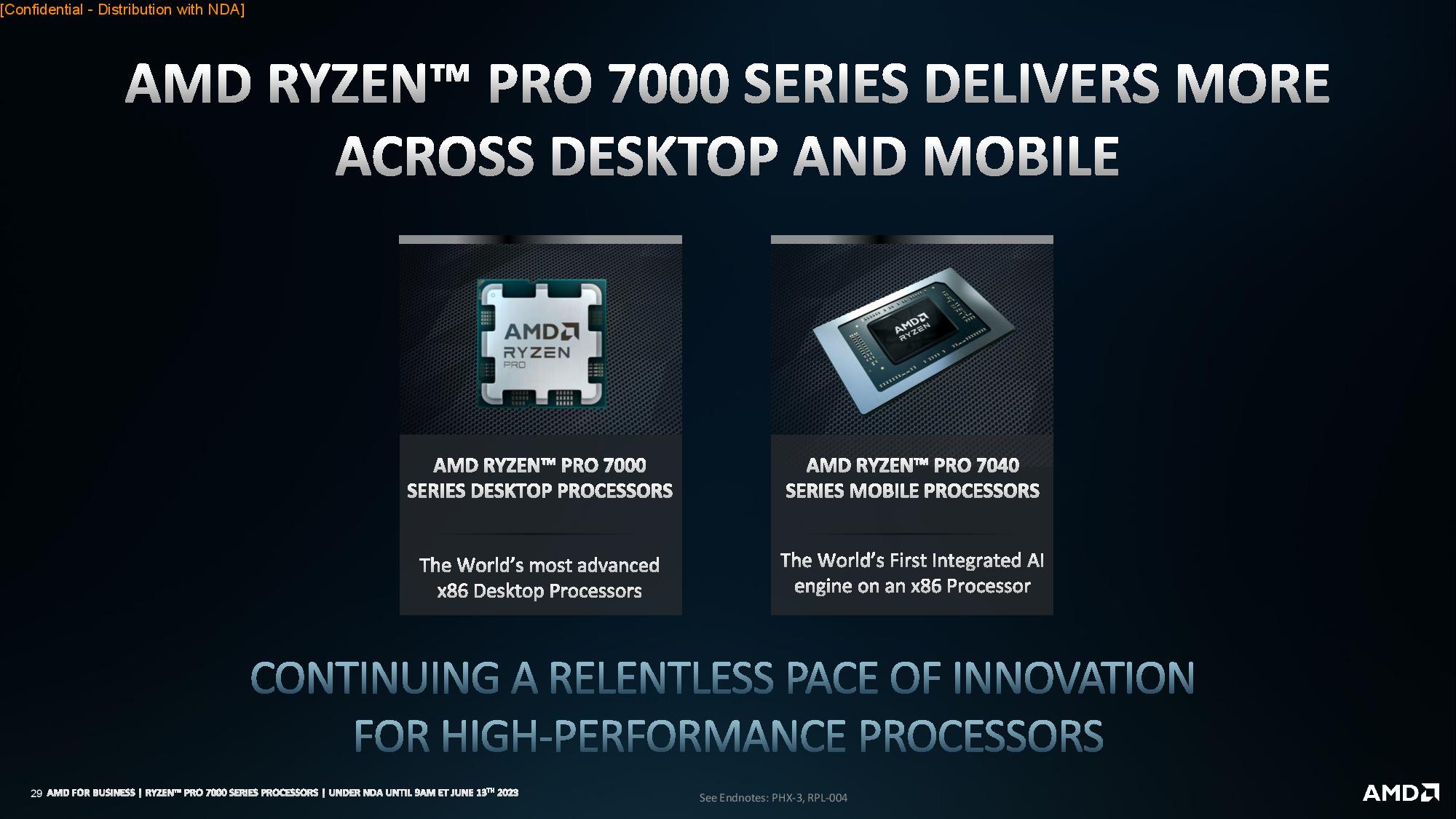
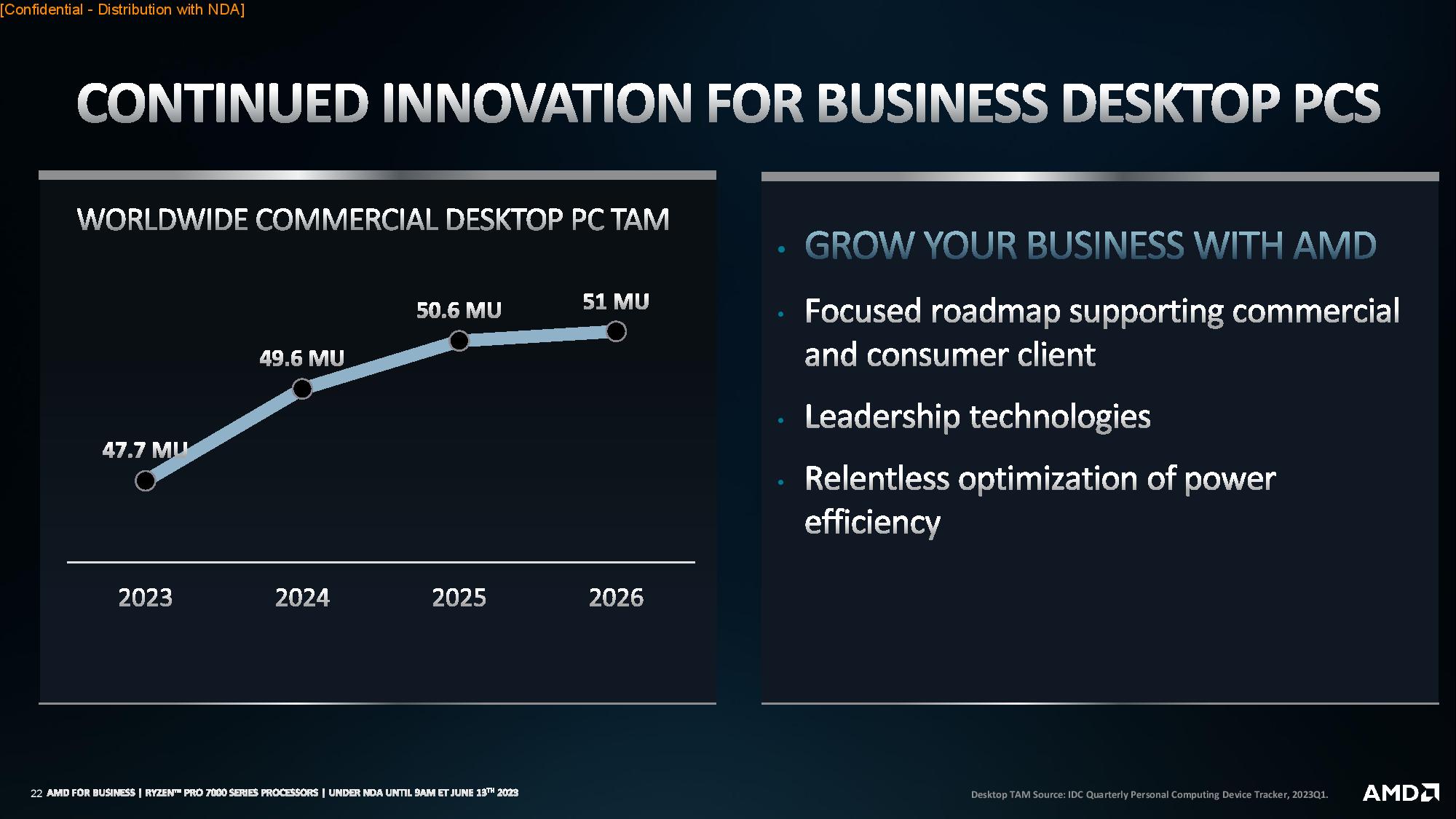
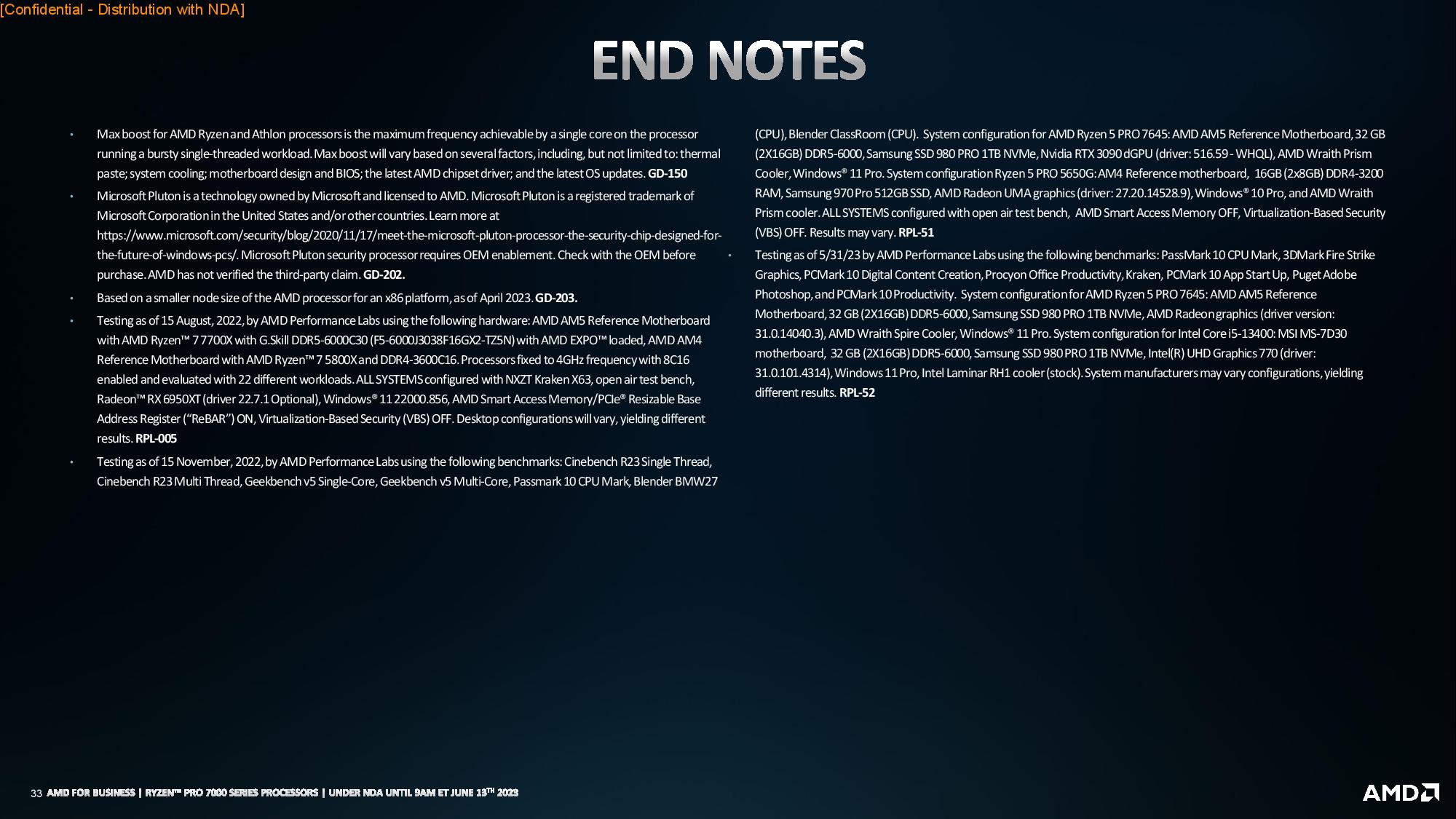
AMD's Ryzen Pro 7000 series desktop chips come in three Zen 4 flavors, with the 12C/24T Ryzen 9 Pro 7945, 8C/16T Ryzen 7 Pro 7745, and 6C/12T Ryzen 5 Pro 7645 comprising the entire lineup. All three models drop into standard AM5 platforms and come with integrated Radeon graphics, a new addition over the prior-gen Zen 3 models. These chips all adhere to a 65W TDP to improve power efficiency and feature many of the same specifications as their Ryzen 7000 consumer counterparts, like the 5nm process, 5GHz+ boost clocks, PCIe 5, and DDR5. These chips also come with the AMD Pro Technology suite.
AMD shared a few gen-on-gen performance comparisons against the Ryzen 5000 series chips, showing impressive performance gains, and also highlighted the Ryzen 5 7645's performance gains over Intel's Core i5-13400, with solid improvements in all areas.
The Ryzen Pro series is available to OEMs now, and systems will come from the company's partners in the coming months.







